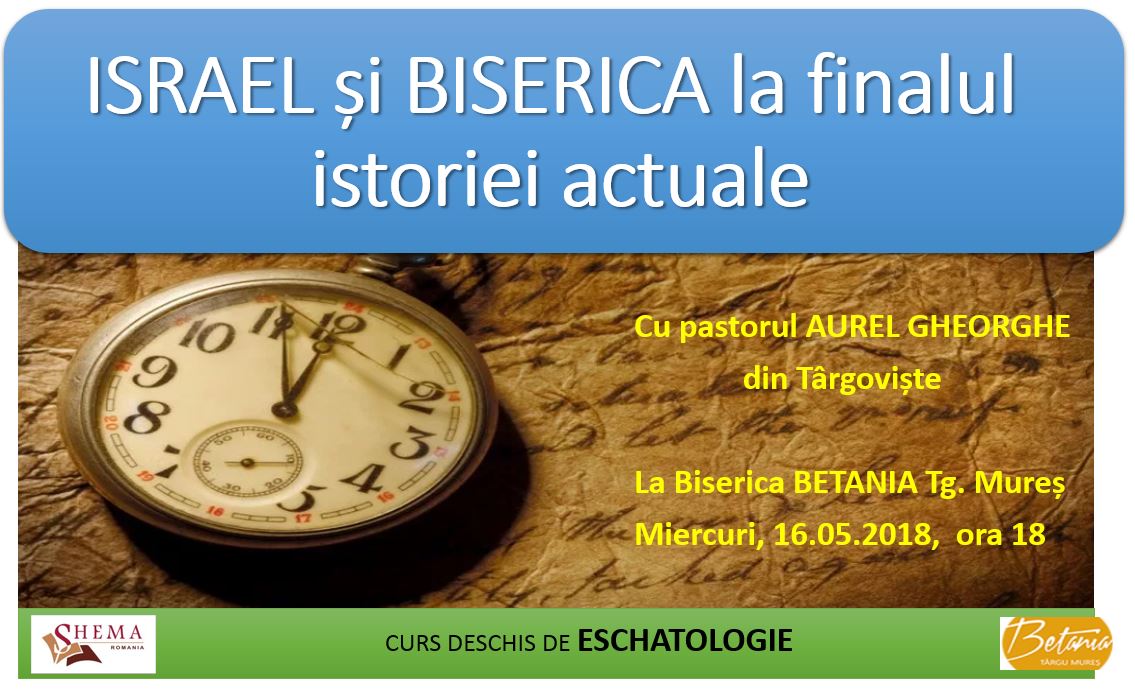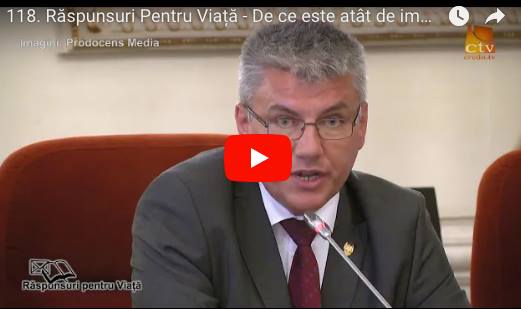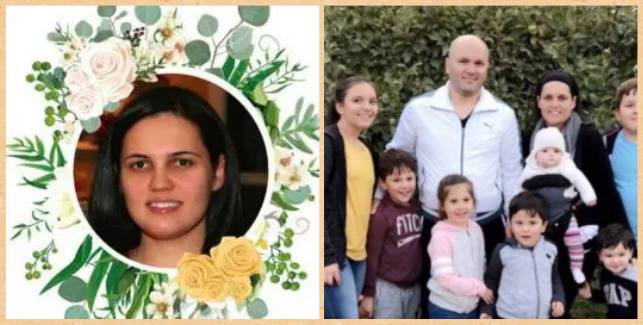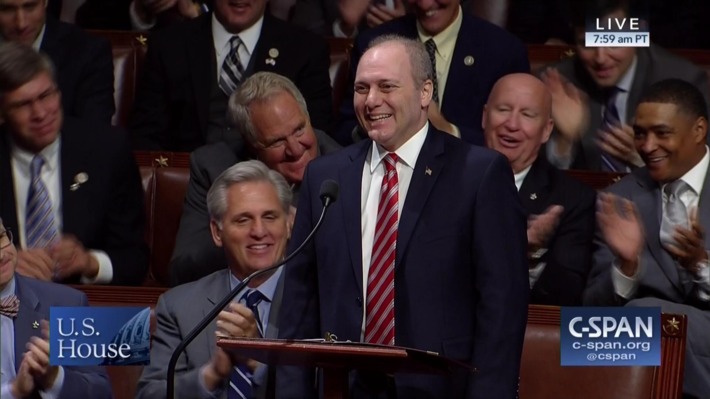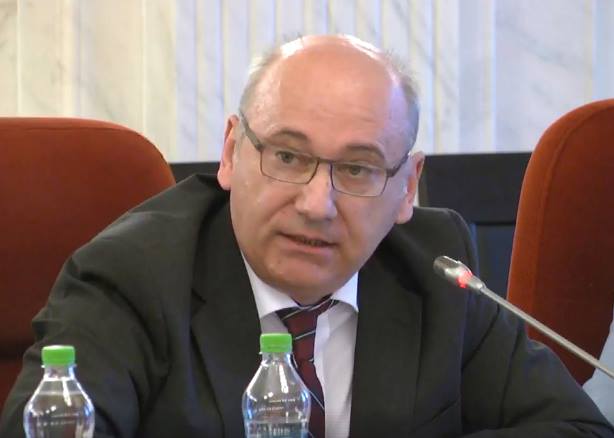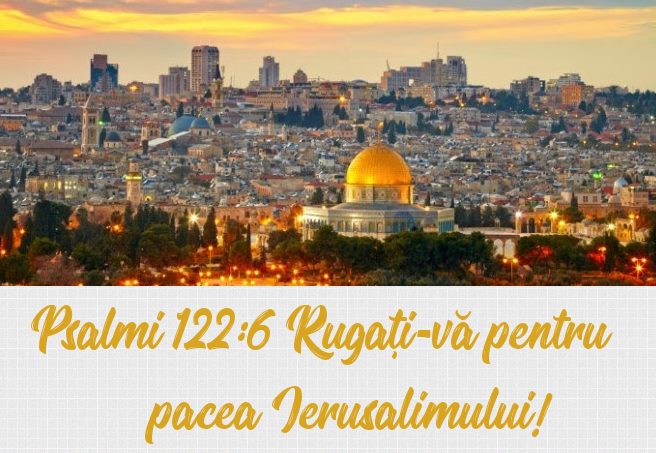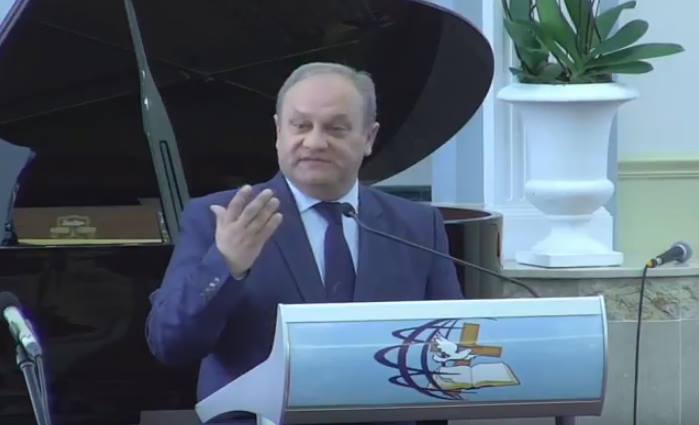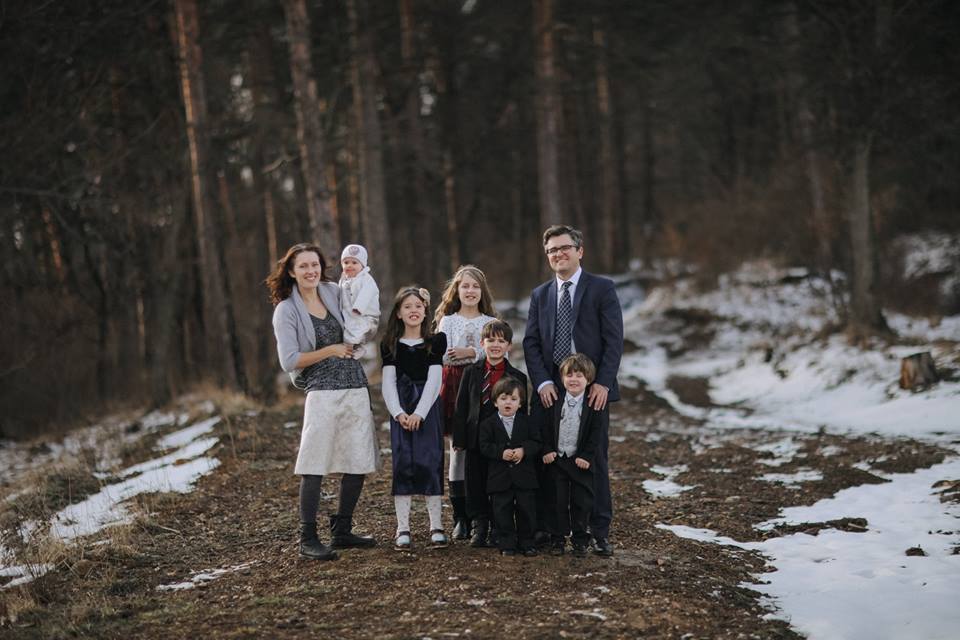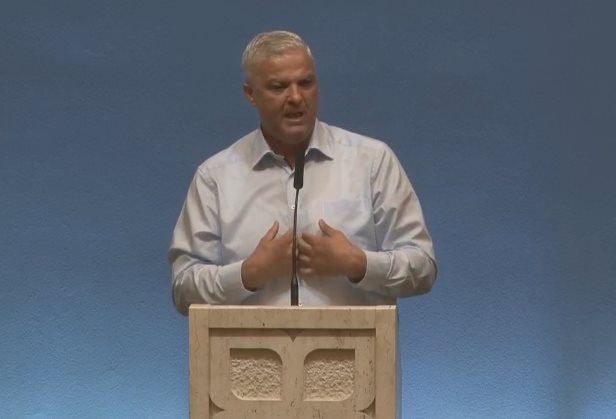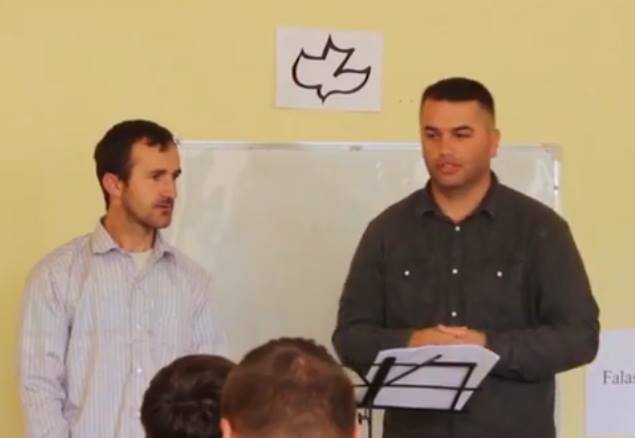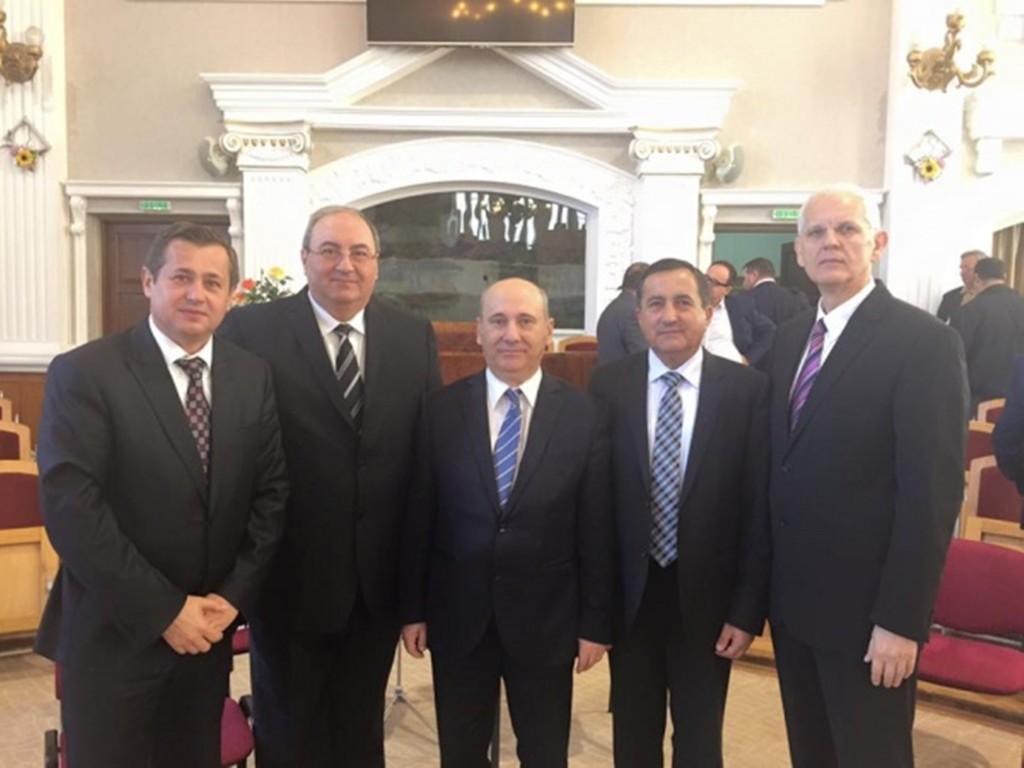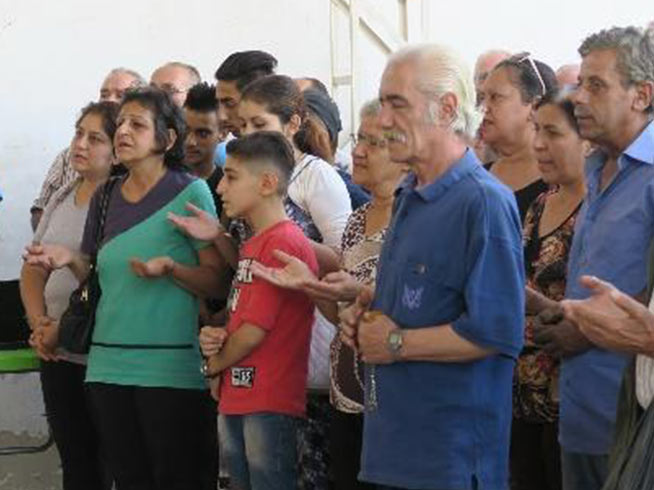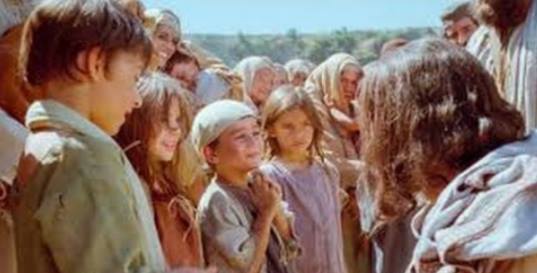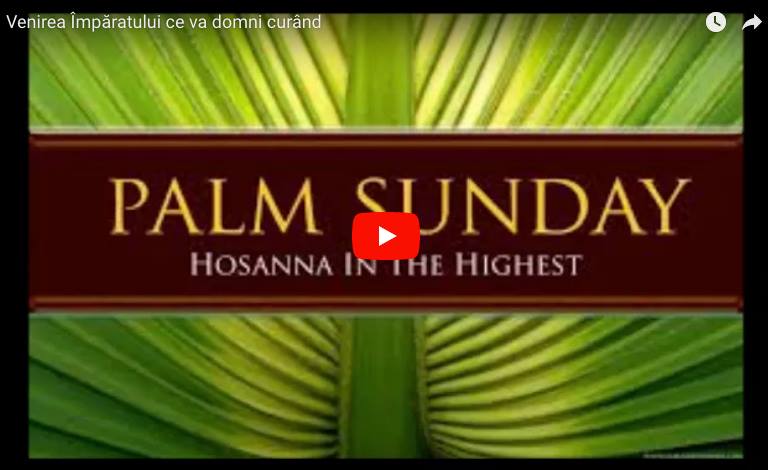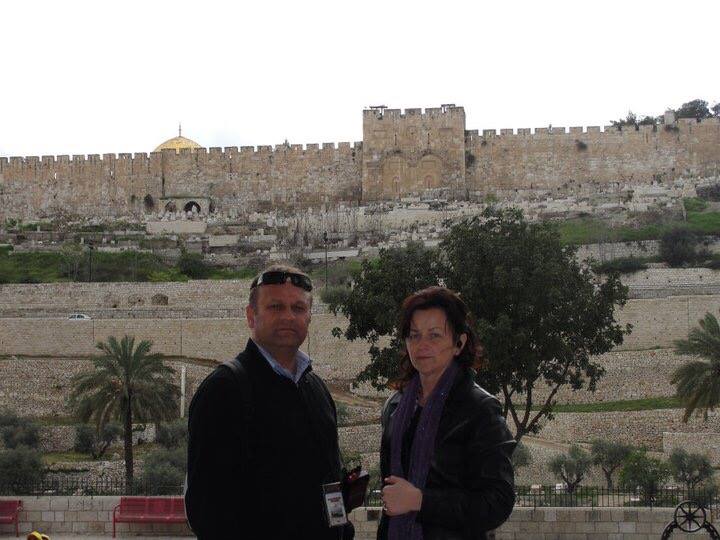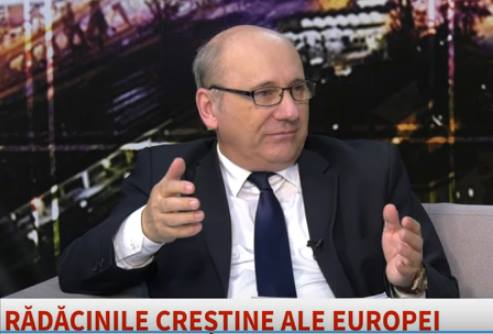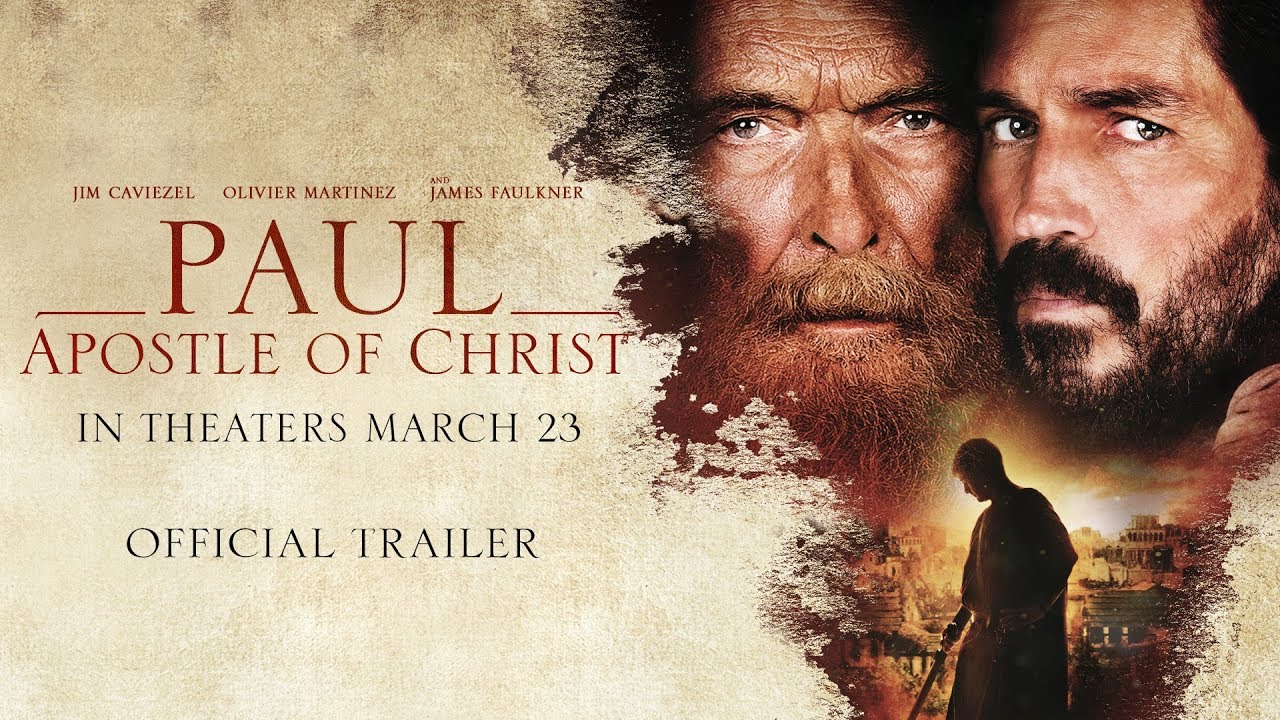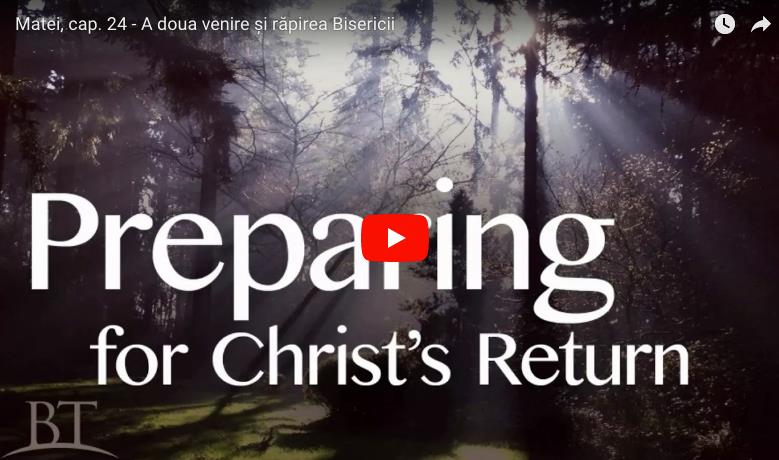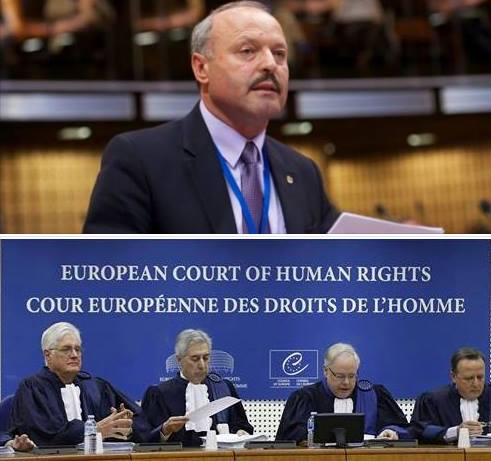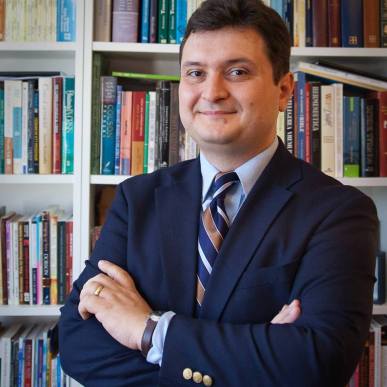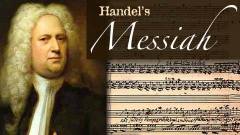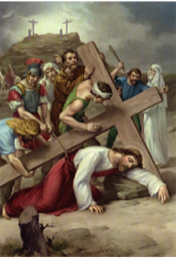Iosif Ton – incepe vorbind despre cei 10 ani in intuneric, cand Richard Wurmbrand l-a ajutat si l-a indrumat inspre lumina si inapoi in Biserica. Credea ca pentru el nu mai exista iertare, dar Domnul Isus i-a aratat ca a murit pentru toate pacatele lui. Predica – despre comuniunea cu Sfanta Treime.
Iosif Ton la Biserica Apele Vii
31 mai 2012 Comentarii închise la Iosif Ton la Biserica Apele Vii
in Uncategorized Etichete:Biserica Apele Vii, iosif ton
Laura Isabella – Suntem Nemuritori !
31 mai 2012 Comentarii închise la Laura Isabella – Suntem Nemuritori !
in Uncategorized Etichete:Facebook, Isabella Laura
Nemurirea
Scripturile descoperă faptul că Dumnezeul cel veşnic este nemuritor (1 Tim. 1, 17). De fapt, El este „singurul care are nemurirea” (1 Tim. 6, 16). El este necreat, existent prin Sine şi nu are nici început şi nici sfîrşit.
„Scripturile nu descriu nicăieri nemurirea ca o calitate sau stare pe care omul sau ’sufletul’, ’spiritul’ său o posedă în mod inerent. Termenii obişnuiţi pentru ’suflet’ şi ’spirit’ se întîlnesc în Biblie de mai bine de 1600 ori, dar niciodată ei nu sînt asociaţi cu cuvintele ’nemuritor’ sau ’nemurire’.
În contrast deci cu Dumnezeu, fiinţele omeneşti sînt muritoare. Scripturile compară viaţa lor cu „un abur, care se arată puţintel, şi apoi piere” (Iacov 4, 14). Ei nu „sînt decît carne, o suflare care trece şi nu se mai întoarce” (Ps. 78, 39). Omul, „se naşte, şi e tăiat ca o floare; fuge şi piere ca o umbră” (Iov 14, 2).
Dumnezeu Se deosebeşte radical de fiinţele omeneşti. Dumnezeu este infinit, ele sînt limitate, au un sfîrşit. Dumnezeu este nemuritor, ele sînt muritoare. Dumnezeu este veşnic, ele sînt trecătoare.
Nemurirea condiţionată. La creaţiune, „Dumnezeu a făcut pe om din ţărîna pămîntului, i-a suflat în nări suflare de viaţă şi omul s-a făcut astfel un suflet viu” (Gen. 2, 7). Raportul creaţiunii descoperă faptul că omenirea îşi are viaţa de la Dumnezeu (Fapte 17, 25. 28; Col. 1, 16. 17). Concluzia logică a acestui adevăr fundamental este aceea că nemurirea nu aparţine neamului omenesc, ci este un dar al lui Dumnezeu.
Cînd Dumnezeu a creat pe Adam şi Eva, El le-a lăsat liberă voinţa – puterea de alegere. Ei puteau asculta sau nu, şi continua lor existenţă depindea de ascultarea lor continuă, prin puterea lui Dumnezeu. Astfel că posedarea darului nemuririi a fost condiţionată.
Dumnezeu Şi-a luat timp să le explice condiţia în care ei vor pierde acest dar şi anume, mîncînd „din pomul cunoştinţei binelui şi răului”. Dumnezeu i-a avertizat că atunci cînd „vei mînca din el, vei muri negreşit” (Gen. 2, 17).
Moartea: plata păcatului
– Contrazicînd avertizarea lui Dumnezeu, că neascultarea va aduce moarte, Satana a declarat: „Hotărît, că nu veţi muri” (Gen.
3, 4). Dar, după ce au călcat porunca lui Dumnezeu, Adam şi Eva au descoperit că, în adevăr, plata păcatului este moartea (Rom. 6, 23). Păcatul lor le-a adus această sentinţă: „Te vei întoarce în pămînt, căci din el ai fost luat; căci ţărînă eşti, şi în ţărînă te vei întoarce” (Gen. 3, 19). Aceste cuvinte nu arată spre o continuare a vieţii, ci spre încetarea ei.
După ce a rostit această sentinţă, Dumnezeu a exclus perechea păcătoasă de la accesul la pomul vieţii, ca nu cumva ei „să mănînce din el şi să trăiască în veci” (Gen. 3, 22). Acţiunea Sa arăta clar faptul că nemurirea, promisă cu condiţia ascultării, a fost pierdută prin păcat. Ei au devenit acum muritori, supuşi morţii. Şi, pentru că Adam nu putea transmite ceea ce el nu mai avea, „moartea a trecut asupra tuturor oamenilor, din pricină că toţi au păcătuit” (Rom. 5, 12).
Primirea nemuririi
Momentul în care se dă acest dar al nemuririi este descris de Pavel: „Iată, vă spun o taină: nu vom adormi toţi, dar toţi vom fi schimbaţi într-o clipă, într-o clipeală din ochi, la cea din urmă trîmbiţă. Trîmbiţa va suna, morţii vor învia nesupuşi putrezirii, şi noi vom fi schimbaţi. Căci trebuie ca trupul acesta, supus putrezirii, să se îmbrace în neputrezire, şi trupul acesta muritor să se îmbrace în nemurire. Cînd trupul acesta supus putrezirii se va îmbrăca în neputrezire, şi trupul acesta muritor se va îmbrăca în nemurire, atunci se va împlini cuvîntul care este scris: ’Moartea a fost înghiţită de biruinţă’. (1 Cor. 15, 51-54). Aceasta face foarte clar faptul că Dumnezeu nu dă credinciosului nemurirea la moarte, ci la înviere, cînd „cea din urmă trîmbiţă va suna”. Atunci „trupul acesta muritor, se va îmbrăca în nemurire”. În timp ce Ioan scoate în evidenţă faptul că noi primim darul vieţii veşnice atunci cînd acceptăm pe Hristos ca Mîntuitor personal (1 Ioan 5, 11-13), realizarea practică a acestui dar va avea loc cînd Domnul Hristos va reveni. Numai atunci noi vom fi schimbaţi din muritori în nemuritori, de la putrezire la neputrezire.
Duhul se întoarce la Dumnezeu
Deşi trupul se întoarce în ţărînă, duhul (spiritul) se întoarce la Dumnezeu. Solomon spunea că la moarte „ţărîna se întoarce în pămînt, cum a fost, şi pînă nu se întoarce duhul la Dumnezeu, care l-a dat” (Ecl. 12, 7). Acest lucru este adevărat pentru toţi, atît pentru cei drepţi, cît şi pentru cei răi.Mulţi au gîndit că acest text aduce dovada că esenţa unei persoane continuă să trăiască şi după moarte. Dar, în Biblie, nici termenul ebraic şi nici cel grecesc pentru spirit (respectiv ruach şi preuma) nu se referă la o entitate inteligentă, capabilă de o existenţă conştientă, aparte de trup. Mai degrabă, aceşti termeni se referă la „suflare” – scînteia vieţii – esenţială existenţei individului, principiul vieţii ce animă atît animalele, cît şi fiinţele omeneşti.
Solomon scria: …….„Căci soarta omului şi a dobitocului este aceeaşi; aceeaşi soartă au amîndoi; cum moare unul, aşa moare şi celălalt. Toţi au aceeaşi suflare (ruach) şi omul nu întrece cu nimic pe dobitoc; căci totul este deşertăciune. Toate merg la un loc; toate au fost făcute din ţărînă şi toate se întorc în ţărînă. Cine ştie dacă suflarea (ruah) omului se suie în sus, şi dacă suflarea (ruah) dobitocului se pogoară în jos în pămînt?” (Ecl. 3, 19-21). Astfel că, după Solomon, la moarte nu este nici o deosebire între spiritul (duhul) omului şi al dobitocului.
Declaraţia lui Solomon, că spiritul (ruach) se întoarce la Dumnezeu care l-a dat, arată că ceea ce se întoarce la Dumnezeu este principiul de viaţă pe care îl dă El. Nu există nici un indiciu că spiritul sau suflarea de viaţă era o entitate conştientă separată de trup. Acest ruach poate fi pus alături de „suflarea de viaţă” pe care Dumnezeu a suflat-o primei fiinţe omeneşti, pentru a anima trupul său fără viaţă (Gen. 2, 7).
Kirk Cameron – Marriage Seminar in Troy, Michigan June 8th,2012
31 mai 2012 Comentarii închise la Kirk Cameron – Marriage Seminar in Troy, Michigan June 8th,2012
in Uncategorized Etichete:Kirk Cameron, Love worth fighting for, marriage seminar, Michigan, Troy
The negatives of dressing immodestly
31 mai 2012 8 comentarii
in Uncategorized Etichete:modesty

Jared Moore gives us yet another reminder of how it affects men, when we as women dress immodestly. Good list to think about and take into consideration:
To read the entire article click here.
Ladies, I want you to know that you do not encourage one single positive response from men whenever you dress immodestly. If you choose to bring attention to yourself sexually by dressing immodestly, you encourage these 9 negative responses:
1. A denial of your mind. By encouraging men to look at you sexually, you encourage them to not think about the fact that you have a mind. If a man does not care about your mind, he does not care about you.
2. A denial of your value. You are more valuable than your physical appearance and your sexual availability. Your value comes ultimately from your Creator (Gen. 1:27). By encouraging men to focus on you sexually, you do not encourage them to value the main elements that make you valuable in God’s eyes.
3. A denial of your need for provision. Although we live in a growing egalitarian society, Christian women should want their husbands to be their primary providers (1 Tim. 5:8, Eph. 5:28-29). Whenever you encourage young men to look at you as a sex object, you encourage them to not consider how they can provide for you as faithful Christian husbands.
4. A denial of your need for protection. In the Scriptures, husbands are expected to protect their wives (1 Pet. 3:7). When a man is looking at you sexually, and he is not your husband, he is unconcerned about protecting you. If he was concerned about protecting you, he would desire to protect you before he looked at you sexually. In other words, marriage and protection are a result of love, and come before sex.

5. A denial of your value as God’s image-bearer. When you encourage men to view you as a sex object, you encourage them to see you as created in the likeness of something less than the image of God. You might be a little higher than the animals in their eyes.
6. A denial of God’s value in creating all the elements that make you a human being. If you are a professed Christian, then you represent Christ in all that you do, including in how you dress. By portraying yourself as a public object for sexual lust, you encourage young men to value your appearance above everything else about you; thus, you encourage them to only value God’s creating ability in your outward appearance. Every element of you was fearfully and wonderfully made, not merely your outward appearance (Gen. 1:27, Ps. 139:14).
7. A denial of your humanity. Your humanity includes more than you being viewed as an avenue for sexual lust. If you are stripped of everything except your sexual worth, then you are diminished to something less than human, slightly above an animal, if that. If you think deeply about this, thousands of women are being sold into the sex trade every year. Their „owners” value them only in a sexual way. Why would you voluntarily encourage men to only value you in a sexual way?
8. A denial of your good works. If you encourage a man to look at your body instead of your good works, you encourage him to selfishly use you instead of enjoying the Lord (1 Tim. 2:10). You shouldrather encourage a man to enjoy the Lord through enjoying you sexually within marriage; instead of encouraging men to sinfully enjoy you without enjoying the Lord. It is impossible for men to enjoy the Lord by looking at you as a sex object.
9. A hiding of God’s glory. When you encourage men to check out your body instead of your face, you encourage them to look at you sexually, an act that only your husband should participate in. If you are a Christian, your goal should be to encourage others to run to Christ. By encouraging men to look at you sexually, you encourage them to run to sin, instead of communicating by your modesty that your body is not for sexual immorality, but is for the Lord (1 Cor. 6:13). You are not your own, for you were bought with the blood of Christ (1 Cor. 7:23). How you dress either reveals this truth or hides it.
Iosif Ton – la Biserica Betania Timisoara
30 mai 2012 Comentarii închise la Iosif Ton – la Biserica Betania Timisoara
in Uncategorized Etichete:Biserica Betania, excluderea, iosif ton, Paul Negrut, predica, Timisoara, vindecarea lui Dora
Iosif Ton predica a doua zi dupa ce Paul Negrut a dat un anunt pe blogul sau ca „Iosif Ton s-a autoexclus din cultul Baptist”.
Pagina – Predici Iosif Ton
Discovery: Researchers believe earthquake reveals day of Jesus’ crucifixion
30 mai 2012 Comentarii închise la Discovery: Researchers believe earthquake reveals day of Jesus’ crucifixion
in Uncategorized Etichete:33 AD, Colin Humphreys, Crucifixion, date of Jesus' death, Dead Sea, earthquake, Ein Gedi Spa, Friday, Friday April 3, geologists findings, Gospel of Matthew, Jesus, New Testament, Pontius Pilate

 By Jennifer Viegas (via) MSNBC
By Jennifer Viegas (via) MSNBCGeologists say Jesus, as described in the New Testament, was most likely crucified on Friday, April 3, in the year 33.
The latest investigation, reported in International Geology Review, focused on earthquake activity at the Dead Sea, located 13 miles from Jerusalem. The Gospel of Matthew, Chapter 27, mentions that an earthquake coincided with the crucifixion:
“And when Jesus had cried out again in a loud voice, he gave up his spirit. At that moment the curtain of the temple was torn in two from top to bottom. The earth shook, the rocks split and the tombs broke open.”
To analyze earthquake activity in the region, geologist Jefferson Williams of Supersonic Geophysical and colleagues Markus Schwab and Achim Brauer of the German Research Center for Geosciences studied three cores from the beach of the Ein Gedi Spa adjacent to the Dead Sea.
Varves, which are annual layers of deposition in the sediments, reveal that at least two major earthquakes affected the core: a widespread earthquake in 31 B.C. and a seismic event that happened sometime between the years 26 and 36.
The latter period occurred during “the years when Pontius Pilate was procurator of Judea and when the earthquake of the Gospel of Matthew is historically constrained,” Williams said.
„The day and date of the crucifixion (Good Friday) are known with a fair degree of precision,” he said. But the year has been in question.
In terms of textual clues to the date of the crucifixion, Williams quoted a Nature paper authored by Colin Humphreys and Graeme Waddington. Williams summarized their work as follows:
- All four gospels and Tacitus in Annals (XV, 44) agree that the crucifixion occurred when Pontius Pilate was procurator of Judea from A.D. 26 to 36.
- All four gospels say the crucifixion occurred on a Friday.
- All four gospels agree that Jesus died a few hours before the beginning of the Jewish Sabbath (nightfall on a Friday).
- The synoptic gospels (Matthew, Mark, and Luke) indicate that Jesus died before nightfall on the 14th day of Nisan, right before the start of the Passover meal.
- John’s gospel differs from the synoptics, apparently indicating that Jesus died before nightfall on the 15th day of Nisan.
When data about the Jewish calendar and astronomical calculations are factored in, a handful of possible dates result, with Friday, April 3, 33, being the best match, according to the researchers.
Williams is studying yet another possible natural happening associated with the crucifixion — darkness.
Three of the four canonical gospels report darkness from noon to 3 p.m. after the crucifixion. Such darkness could have been caused by a duststorm, he believes.
Williams is investigating if there are dust storm deposits in the sediments coincident with the earthquake that took place in the Jerusalem region during the early first century.
Read the entire article here – MSNBC
From Resurrection to Pentecost – ACTS 2
30 mai 2012 Un comentariu
in Uncategorized Etichete:George O. Wood, Pentecost, Spiritual gift
THE DAY OF PENTECOST Acts 2
Dr. George O. Wood
Last week we sort of strolled through Acts 1, which is a period in the Book of Acts which deals with the theme from resurrection to Pentecost. It involves a period of some fifty days following the resurrection of the Lord, and His appearance for forty days to the disciples, where He again teaches the principle themes that had occupied Him in His earthly ministry. Then, following His ascension into heaven, there was a period of ten days in which the church was waiting in prayer. When we come to the second chapter of Acts, we come to a chapter which we may simply title, ―The Day of Pentecost.‖ If you are keeping notes on this, I‘m not trying to be the most organized and clear in this message as with last Sunday night, I don‘t have four points or seven points or whatever, as I normally do in a teaching series. I‘m simply trying to look with you at the text. But at the same time, I‘d like to keep before you a context so you don‘t get lost in this Bible study. Therefore, if you‘re doing some headings, the first chapter is simply titled ―Resurrection to Pentecost‖ and this second chapter can be titled ―The Day of Pentecost.
I‘m going to spend quite a bit of time just on the first phrase. I‘m not sure just how far we‘ll get. My goal is to get all the way through forty verses, but I‘m also realizing that, while I can talk endlessly, you cannot listen endlessly and there must be a balance to all things. Someone has said that lecturing is the transmission of what is in the teacher‘s notebook to what is in the student‘s notebook without it going through the head of either. Maybe that‘s a good reason why, in this series, I‘m laying aside my notes so that I can share with you, not out of cognitive levels alone, but out of heart levels and kind of lay aside those trappings of nicety and organization in order to get at more gut and fundamental things. And two, I didn‘t want to use notes so in case we do get carried away with a phrase, I won‘t feel like I‘ve got to be bound, that I have to get all the way through.
 The text says, ―When the day of Pentecost came. That‘s a very flat reading, actually. A more literal rendering of the Greek text and you know I‘m loath to use that reference ―the Greek text,‖ because it immediately puts all of you who don‘t have the ability to work with the Greek text at a disadvantage. And it allows me to be the custodian of the sacred knowledge. Don‘t you hate ministers who settle arguments by saying, ―But it really says in the Greek…‖? It‘s really us doing a one-upmanship on the laity and it‘s grossly unfair, and I try to stay away from it. One reason is that I don‘t know the Greek that well so it is not to my interest to be able to pass myself off as a Greek scholar. However, when I am in trouble, I will use the Greek in order to win the argument—you should know that in advance. That is one of the tactics we have in the ministry for sustaining our position.
The text says, ―When the day of Pentecost came. That‘s a very flat reading, actually. A more literal rendering of the Greek text and you know I‘m loath to use that reference ―the Greek text,‖ because it immediately puts all of you who don‘t have the ability to work with the Greek text at a disadvantage. And it allows me to be the custodian of the sacred knowledge. Don‘t you hate ministers who settle arguments by saying, ―But it really says in the Greek…‖? It‘s really us doing a one-upmanship on the laity and it‘s grossly unfair, and I try to stay away from it. One reason is that I don‘t know the Greek that well so it is not to my interest to be able to pass myself off as a Greek scholar. However, when I am in trouble, I will use the Greek in order to win the argument—you should know that in advance. That is one of the tactics we have in the ministry for sustaining our position.
But this is a rather flat interpretation. The literal rendering of the Greek here would say something like this, ―And in the filling up of the day of Pentecost.‖ That‘s a rather intriguing phrase. What could that possibly mean? Is Pentecost empty? What is it that is filling it up? And how does that relate to the word? How does the concept of filling up relate to the word ―Pentecost‖ itself?
The word ―Pentecost‖ has come widely into vogue in this century, especially since 1901. It was actually the first day of this century―January 1, 1901―that a group of believers were meeting at a place called Stone‘s Folly in Topeka, Kansas, a Bible School. There was a small group of believers who were attempting to see if there was anything deficient in their Christian experience or the Christian experience of their church, which was taught in Scripture but was presently deficient. They came to a conclusion on the basis of their study, especially of Acts, that the one element that was deficient of their own church experience and personal experience was that what is described in the Book of Acts as the ―baptism in the Holy Spirit‖ with speaking in other tongues was a phenomena that they had not observed or seen. Yet they became persuaded by studying the Book of Acts that this was an experience that was a pattern in the Early Church. And they simply opened themselves up to receive again that same blessing of the Spirit in the present that He gave in the apostolic era, if it so pleased the Holy Spirit.
It was as a result of a number of days of fasting and praying that, in accordance with their request, the Holy Spirit came upon that small group meeting in this unfinished mansion called Stone‘s Folly; and the Pentecostal movement in this century began. It is now estimated that this movement embraces hundreds of millions of people worldwide under the general title ―Pentecostal.‖ And, of course, the newer phrase begun in the 60s for this movement, which emphasized the baptism in the Spirit, with speaking in languages not learned or speaking in other tongues, the more modern name has been the charismatic renewal. Both the words ―charismatic‖ and ―Pentecostal‖ are biblical words. ―Charismatic‖ comes from the Greek word charismata or charisma meaning in the singular ―charisma,‖ ―spiritual gift.‖ It‘s always used as a reference, not to a gift given by man to man, but a gift given by God to man. Or a gift from the greater to the lesser. It is, therefore, a free gift, a beneficent gift, charisma. And the plural is charismata, from which we derive ―charismatic.‖
There‘s no real mystery about Pentecost.
The older word that has been in use is the word ―Pentecostal.‖ It also has a very rich history and, in fact, it has a rich biblical history. That‘s what I want to key in on for just a moment, because it is that word, ―Pentecost,‖ that was in the process of being filled up on the day of Pentecost, in Acts 2. There‘s no real mystery about Pentecost. I would like to say to you that the word has some splendid hidden spiritual meaning and that when I decipher it, I‘ll send you away with goose bumps, saying, as you smack your head on the pew, ―Why didn‘t I ever see that before in the meaning of that word in Scripture?‖ But it simply is a word which means fifty. It‘s from the Greek pente, which you‘ll immediately recognize as the word for five. ―Pentecost‖ meaning fifty. In the Hebrew usage, it was a festival of the Hebrew year which, to the Greek speaking Jews, acquired the name Pentecost.

The actual word for the festival in the Hebrew language is Shavuot which is still the custom in Israel today―the Feast of Shavuot or the Feast of Weeks as it is called. It is called the ―Feast of Weeks,‖ because there are seven weeks plus a day―hence the name ―fifty. Seven weeks plus a day, from the Feast of Firstfruits until the Feast of Pentecost. That means that if I‘m going to define Pentecost, I need to define the Feast of Firstfruits. That‘s what I want to do for a few moments.
If you read Scripture closely, the Scripture itself is its own best interpreter. Scripture tells us what Pentecost is. But in order to understand Pentecost, we must get more than a lexical definition of the word. You can‘t simply go to a Bible dictionary or to an English dictionary and look up ―Pentecost and think that simply by looking at the dictionary definition we have grasped what the concept is. The concept is revealed from within the context in which the whole meaning of Pentecost is laid out.
Leviticus 23 that tells us the contextual meaning of what Pentecost is
I want to take you to one of the esoteric books of Scripture which I know you spend a lot of time reading and pouring over the details in this book. It‘s the marvelous Book of Leviticus, the third book of the Bible. It is Leviticus 23 that tells us the contextual meaning of what Pentecost is. Where I‘m ultimately going, you‘ll see when I get done. One of the things I‘m going to try to answer in this discussion of Pentecost is whether or not what happened on the Day of Pentecost was a one-time event, meant for those people back then alone, or if it is meant to have continuing significance for us today, and for the whole church all over the world today. I‘m suggesting to you that the answer to that question is bound up intricately in the meaning, the very meaning of the word ―Pentecost, and that the Scriptures themselves give us, through prophetic typecasting what that word is meant to represent.

7 feasts of the Jewish calendar
photo credit – www.endtimepilgrim.org/7feasts.htm Visit website for detailed explanation of the 7 feasts
Leviticus 23 sketches out the seven feasts of the Jewish year; ―God‘s calendar of time‖ is a good way to identify this chapter. It was meant to be a calendar whereby God‘s people would have seven moments, through every twelve-month period of time, to stop and reflect on their special relationship with God. One of the Jewish writers, in commenting on God‘s calendar of time says that the Jewish people were not great in being remembered for building great monuments or sanctuaries, but God chose to mark His presence among them by covenant and by calendars of time. Time comes to us inexorably, and those seven feasts that were celebrated through the year, whether one wanted them to come or not, they came. Because time does come inexorably and God chose every year to have seven aspects of His relationship to His people marked in truth by the content of those festivals.
To briefly run them by you, because Pentecost fits as the middle of those seven festivals, it is the fourth festival, it belongs to the set of the first three. Here are the festivals.
 The first festival is the Festival of Passover. The fourteenth day of the first month. It is a very significant time in Hebrew. Hebrew uses double sets of sevens and threes and things like that. But just the double set of seven, the fourteenth day of the first month, God‘s people find their identity through His act of deliverance. That‘s what the Passover was all about, the shedding of the blood of the Passover lamb―the death angel going through and passing by so that the firstborn of the family did not die. It signified God‘s great deliverance out of Egypt. The Passover lamb has been sacrificed.
The first festival is the Festival of Passover. The fourteenth day of the first month. It is a very significant time in Hebrew. Hebrew uses double sets of sevens and threes and things like that. But just the double set of seven, the fourteenth day of the first month, God‘s people find their identity through His act of deliverance. That‘s what the Passover was all about, the shedding of the blood of the Passover lamb―the death angel going through and passing by so that the firstborn of the family did not die. It signified God‘s great deliverance out of Egypt. The Passover lamb has been sacrificed.
The Feast of Passover was then immediately made to be concurrent with a feast called the Feast of Unleavened Bread, which began the night of Passover and, unlike Passover, which lasted just one night (the fourteenth day), the Feast of Unleavened Bread ran from the fourteenth day and runs today still in Israel from the fourteenth day to the twenty-first day of the month. It is meant to commemorate the fact that God‘s people are to purge their houses and homes of leaven, leaven being a type or figure of contaminating influence. So, still today, an Israeli home, a Jewish home here in America, as an observant Jew, you will have the ritual search for leaven in the house and the removal of leaven as an event.
 The third feast that interposed itself was called the Feast of Firstfruits. It occurred the seventh day or the twenty-first day of the first month. The seventh day after Passover. It was primarily an agricultural feast, which said it is time for the barley crop to begin to be harvested. The wheat is standing in the field. It‘s ready to be harvested. But before any of it can be harvested and eaten by the people who have sown the seed and tended the fields, there must be a gathering of the firstfruit of that harvest. The first standing shocks of grain must be identified. Those standing shocks of grain must be cut down and brought as an act of celebrative worship in Solomon‘s or David‘s time to the temple. And in Jesus‘ day, again to the temple where, in a special wave offering, that sheaf of grain was, as you will, waved before God. In fact, it was the law within the Old Testament that no one could eat of the spring crop until the very first of the crop had been offered to God. When the crop had been offered to God, then the rest of the people could partake in the entire remaining crop that was to be harvested; signifying a great biblical truth: that the first things always belong to God. In the Old Testament, it was the first child that belonged to God, the first of the income belonged to God, the first of the crop belonged to God, the firstfruits. In fact, when you read the Book of Joshua you discover that the first Feast of Firstfruits that Israel kept in its new entry into Canaan, on that day, the manna stopped. God‘s provision under the old system ceased as they began to reap the product that was in the new land.
The third feast that interposed itself was called the Feast of Firstfruits. It occurred the seventh day or the twenty-first day of the first month. The seventh day after Passover. It was primarily an agricultural feast, which said it is time for the barley crop to begin to be harvested. The wheat is standing in the field. It‘s ready to be harvested. But before any of it can be harvested and eaten by the people who have sown the seed and tended the fields, there must be a gathering of the firstfruit of that harvest. The first standing shocks of grain must be identified. Those standing shocks of grain must be cut down and brought as an act of celebrative worship in Solomon‘s or David‘s time to the temple. And in Jesus‘ day, again to the temple where, in a special wave offering, that sheaf of grain was, as you will, waved before God. In fact, it was the law within the Old Testament that no one could eat of the spring crop until the very first of the crop had been offered to God. When the crop had been offered to God, then the rest of the people could partake in the entire remaining crop that was to be harvested; signifying a great biblical truth: that the first things always belong to God. In the Old Testament, it was the first child that belonged to God, the first of the income belonged to God, the first of the crop belonged to God, the firstfruits. In fact, when you read the Book of Joshua you discover that the first Feast of Firstfruits that Israel kept in its new entry into Canaan, on that day, the manna stopped. God‘s provision under the old system ceased as they began to reap the product that was in the new land.
That is then followed by the fourth feast, the last feast of spring, the Feast of Pentecost or Feast of Weeks. Seven weeks and a day afterwards, which marked the completion of the spring harvest. Firstfruits marked the beginning, Pentecost marked the completion of the spring harvest and all was gathered in. At this time, instead of a raw sheath of grain being waved to God, the people were instructed along with the animal sacrifices that were to be brought, they were instructed to bring loaves of bread that had yeast or leaven in them. That‘s the only offering I think you can find in the Old Testament where leaven or yeast is required in the offering normally, since leaven is a type of sin and evil that must be purged out. But in this particular case, leaven was in the bread. It was offered as an offering, as a kind of wave offering to God, a presentation of labor to God. That was the end of the spring feast.

The New Testament fulfills those Old Testament feasts
We talk about how the New Testament fulfills those Old Testament feasts, they were like an empty container—a pitcher or a can or a great big receptacle of some kind—without New Testament truth being poured into them. Some of you have poured concrete. I‘m not into construction, but I‘ve seen them do it. You lay out the forms then you pour in the concrete. Then, when the concrete is poured and set, you can take out the forms. But the forms are necessary in order to guide the content of what is being poured into the form. That‘s the same way with these old feasts within our Christian observance. Once the truth is poured into the form, the form represented something. Then, Christians no longer kept a calendar year where the first month of every year, the fourteenth day, they had Passover, etc. We keep these feasts, not as observance once a year, but we keep them perpetually in our hearts as an ever-present observance. But the New Testament truth that fills up the Old Testament form is what is at stake here.

(1) The Passover – Of course, when we look at the spring feast, these four feasts I‘ve enumerated are kept within a New Testament perspective. The first: Passover. In 1 Corinthians, ―Christ, our Passover lamb, has been sacrificed.‖ The fulfillment of the Feast of Passover within a Christian sense was that Christ‘s blood on a cross was sufficiently applied to the door posts of our life so that the death angel passes over and our life is hid with God in Christ, so that there can never again be an alienation of our life from God. And we are kept by God, protected by Him because He is the type. He is the one who fulfills the type that the Passover lamb represented. Then, when we have communion, or whenever we remember Christ‘s sacrifice, we are keeping that feast in our hearts. Christ was offered up for us. So the Feast of Passover was fulfilled in Christ and we perpetually observe that feast whenever we remember Christ‘s sacrifice for us.
(2) In regards to Feast of Unleavened Bread, Paul tells the Corinthians, ―Purge out the leaven.‖ By this, he is talking about the responsibility we as Christians have to actively seek the rooting out and eradication of sin in our life; malice and evil and immorality and impure thoughts and impure language and the like. That it is part and parcel of the Christian life to get serious about the removal of leaven from our life; that the keeping of the Feast of Unleavened Bread occurs, whenever and if we consciously set out to seek God‘s holiness in our life. Seeking for our life to be better conformed to the personality and character of God. That‘s keeping the Feast of Unleavened Bread.
(3) The third spring feast is the Feast of Firstfruits. Paul says, in 1 Corinthians 15, ―Christ, the first fruit, was raised from the dead.‖ There‘s a precise fulfillment of that feast in Christ‘s life because He rises again from the dead on the literal day of the Feast of Firstfruits. [Did I say Feast of First Fruits was seven days after Passover? I‘ll take that back. It was not. It was the first day after Unleavened Bread, which would make it the second day after Passover. Then Unleavened Bread continued through the week.] Christ rose from the dead on that day, the day of Firstfruits.
Get the picture for just a moment. Think of two locals in Jerusalem. One local is out in a barley field. It is early in the morning. The sun has not yet come up. In accordance with the custom, the high priest is going out with his top henchmen and has gathered in a field where some shocks of grain have been pre-marked and pre-roped. They have come out there so that, the minute the sun rises on that day, they may cut down that sheaf of grain and ceremoniously carry it back to the temple to wave it as a firstfruit to God, signifying that now the first of the crop is being harvested for springtime. The moment they are putting the sickle into the crop in another part of town, in a tomb where a stone had been rolled against it which was being guarded by soldiers, Jesus Christ comes out of the grave, marking the fact that He is the first from among the dead to rise. Just as the agricultural Feast of Firstfruits signified that it was ok for the rest of the harvest to be gathered, so Christ‘s rising from the dead is a guarantee to us that Christ—who is the Firstfruit— being the lead, will allow all who follow after Him to also be incorporated in the act which He does. That is, His resurrection is not singular and alone and only for Himself. It embraces all of us. He‘s the first. But once He has risen from the dead, then the door is open for all of us to likewise go through resurrection. None of us can have resurrection life until He‘s been resurrected. Just like no one could eat the grain until the Firstfruit was offered. But when the firstfruit has risen from the dead, then the rest of us begin to have the opportunity to participate in the resurrection life.
So whenever we celebrate Christ‘s resurrection, we are keeping the Feast of the Firstfruit.
That brings us, then, to the Feast of Pentecost and what‘s being filled up. Pentecost was at the end of the harvest, the completion of the harvest. It was all in. It was the product that was now being presented to God, the baked loaf with leaven, an excellent type of the fact that, all during the age of the Christian church, there was going to be a harvest. And that harvest is represented by a loaf of bread which is a combination of flesh and spirit. We have yeast in us, the leaven of unrighteousness. But it‘s not the raw product but the product that is being formed from the harvest that is presented to God. Pentecost is a harvest festival, a spring harvest festival.
Pentecost – an era in which the church is at work in the harvest
 I would submit to you, if we really want to understand the meaning of Pentecost it must be related to the whole understanding of the fact that God, in this world, is gathering for Himself a harvest of people; and that harvest of people is to continue until the day of Pentecost is over. I would submit to you that just as the concept of the day of Passover, the day of Firstfruits, the day of Unleavened Bread is a perpetual observance, so Pentecost is not just a twenty-four-hour period of time. It is meant to describe a whole era in which the church is at work in the harvest and the harvest, the product of Christ‘s finished work, is being gathered to present to God. The Day of Pentecost. After the Day of Pentecost, there is a whole period of four months where there are no festivals.
I would submit to you, if we really want to understand the meaning of Pentecost it must be related to the whole understanding of the fact that God, in this world, is gathering for Himself a harvest of people; and that harvest of people is to continue until the day of Pentecost is over. I would submit to you that just as the concept of the day of Passover, the day of Firstfruits, the day of Unleavened Bread is a perpetual observance, so Pentecost is not just a twenty-four-hour period of time. It is meant to describe a whole era in which the church is at work in the harvest and the harvest, the product of Christ‘s finished work, is being gathered to present to God. The Day of Pentecost. After the Day of Pentecost, there is a whole period of four months where there are no festivals.
Then in the seventh month, the last three festivals come, which have not yet been fulfilled within Christian prophecy
Then in the seventh month, the last three festivals come, one right after the other―the Feast of Trumpets, which is a summoning of the people to festival and joy, and then after the Feast of Trumpets is Yom Kippur, which is the heaviest day, the Day of Atonement. It occurs on the tenth day of the seventh month. After that, comes Sukkoth or the Feast of Booths, in which God‘s people tabernacle for a week out in lean-to shelters or tents or canopies.
Those last three feasts of Leviticus 23 have not yet been fulfilled within Christian prophecy.
- The Feast of Trumpets, representing the return of the Lord.
- Yom Kippur, the Day of Atonement, representing Zechariah 14, the fact that there‘s going to be a time of cleansing and the household of Israel, when it sees Him whom they have pierced.
- And finally, the Tabernacles, when we tabernacle with God. Revelation. And He tabernacles with us.
So all we have, at this present moment, for Christian fulfillment are the first feasts of spring. It is still the springtime within Christian experience and the Christian life. Beginning with Passover, extending through Pentecost.
Pentecost – an outpouring of a power of harvest
Here is where we are in the world today. God did not send the Day of Pentecost so that Christians would feel good. He wants us to feel good. He wants us to have elevation and motivation in our life. But He is concerned that there be a product, an end result to the effort that His Son came into the world to gain. Unless there is a fulfilling of Pentecost, a power of the harvest poured out on the Day of Pentecost, His small band of people will never be effective in in-gathering the harvest to present to God.
So whenever we talk about Pentecost, we must not only talk about blessing, we must talk about duty. Because God never intended His people to simply be charismatic. That is, simply to be a people who have a spiritual blessing and an elevated spiritual experience. We need the elevated spiritual experience. But that comes because we have a duty to do. If we try to do the duty of harvest or evangelism or outreach and have no electrical charge from the Spirit of God, then we‘re just not going to be able to do it, because it‘s too heavy. If, on the other hand, we have all delight and no duty, then we‘re going to wind up as kind of a spiritual bless-me club and not get God‘s purposes done in the world.
Pentecost joins these elements of God blessing His people and saying to His people, ―This is the day of the harvest, the Day of Pentecost is being filled up. God is saying, ―I intended Pentecost to be more than just an agricultural feast. I intended it to celebrate the harvest of mankind into the kingdom of God.
The Day of Pentecost being filled up and, therefore, right from the start, I‘ve come to the assumption that this is not something that was just for then. Because the day has never closed. There‘s never yet been a sunset on the day and the Day of Pentecost will not be over until the Feast of Trumpets, until the trumpet sounds and the Lord returns.

When the day of Pentecost came
―When the day of Pentecost came [when it ―filled up‖], they were all together in one place. Suddenly a sound like the blowing of a violent wind came from heaven and filled the whole house where they were sitting. They saw what seemed to be tongues of fire that separated and came to rest on each of them. All of them were filled with the Holy Spirit and began to speak in other tongues as the Spirit enabled them‖ (Acts 2:1-4, NIV).
One of the things we have to do when we open the Book of Acts is immediately look at what might be called ―unique moments which are non-repeatable in the life of the church‖ and the experience of believers, and normative experiences, which are meant to be repeated. On the Day of Pentecost, we find both kinds of events present. We find unique events that are never repeated in the experience of the church, as witnessed by the Scripture. And, on the other hand, we find normative events that not only occurred then but continue to occur now.
Let me look at the unique events with you. The unique event is, for example, that they were all gathered together in one place. I submit to you that that will never happen again until we meet at Jesus‘ feet. After the Day of Pentecost, the church could never again gather in one room. So that was a unique event. I was a little bit of a mystic. I got this from people who influenced me spiritually. One of the things I like to do in my own worship experience is to take a moment and close my eyes and get back into the biblical picture. I like to do that when I‘m taking communion. I‘m now in the room, and I now become the thirteenth apostle or whatever. I‘m in the room. Kind of in the back row, but I‘m in the room, seeing what‘s going on. I sort of feel that way on the Day of Pentecost. I‘m with those one hundred and twenty. I‘m the one hundred and twenty-first person there. It‘s sort of like putting myself on the scene. Quite frankly, some of the greatest experiences I‘ve had in my life have been in the Upper Room in Jerusalem. The funny thing is, I know that God doesn‘t dwell in human places and those who worship Him must worship Him in spirit and in truth. And furthermore, the Upper Room in Jerusalem today is not the Upper Room of the biblical period because it‘s two thousand years after that, even when the building is one thousand years old, which makes it a new building. But still, when I go in that place called the Upper Room, I kind of go crazy.
It had to be a pretty large room to hold one hundred and twenty people. They‘d been camping out there for ten days. They were all there together in one place. I guess one of the things that really shines in my heart is the fact that there‘s going to be, someday, a moment in which God allows us to have an experience of being in a room again where the whole church of all times is gathered in one place. It‘s going to be a vast hall. But it‘s going to be intimate and personal, nevertheless.
I have a lot more people who are already in that room than I did twenty years ago. I‘m sure all of us do as well. It‘s a great day, we‘re looking forward to. But that‘s unique. Never again will the church be gathered in one place.
Another thing that is unique, that we do not find repeated in Scripture, is the sound of a mighty rushing wind. You look at the experiences where the Holy Spirit is received in later passages in the Book of Acts and you do not find any reference to a ―mighty rushing wind,‖ which is a sign that here is a unique event. The Holy Spirit was, through the symbol of the sound, saying to the church that there is going to be an invasion of the Spirit. The word for ―wind‖ and ―spirit‖ in the Hebrew and the Greek is the same. They‘re synonyms.
 What the Holy Spirit is saying, through this presence of wind, is that He is going to move through His people in an unseen and invisible way and is going to do some powerful pushing of them into the world. It will take the wind of the Holy Spirit to scatter the disciples into the world. Already in the room they‘re picking up the sound of the rushing wind. The very fact that the wind is rushing and violent suggests that God is about to do something very turbulent and powerful, sweeping into their life.
What the Holy Spirit is saying, through this presence of wind, is that He is going to move through His people in an unseen and invisible way and is going to do some powerful pushing of them into the world. It will take the wind of the Holy Spirit to scatter the disciples into the world. Already in the room they‘re picking up the sound of the rushing wind. The very fact that the wind is rushing and violent suggests that God is about to do something very turbulent and powerful, sweeping into their life.
The tongues of fire that are resting on each of their heads, which first appear then, break up and distributes over them, are not as one biblical commentator says, that they had seen a sudden beaming of the sun rays that were streaming into the windows which de-miraculacizes this event. It is, instead, a sign that the Holy Spirit, when He comes, is a purifying instrument. So fire comes.
Then there comes this other element. That all of them were filled with the Holy Spirit and began to speak in other tongues, as the Spirit enabled them―Acts 2:4. As we look at that particular verse of Scripture, we ask ourselves, is that also unique, like the fire and the wind and the fact that they‘re gathered in one room? Or was that meant to be a normative and ongoing experience of the disciples? We‘ll see, in later texts of Acts, that phenomenon occurring again.
I realize that there has been, in the modern day, a lot of comment on whether or not there is a subsequent experience of the Holy Spirit called the ―baptism in the Holy Spirit‖ separate from conversion. That‘s question number one. And question number two: If there is a subsequent experience of the baptism in the Holy Spirit different than conversion, must that experience of the Holy Spirit be witnessed to by the presence of other tongues, as it is here in Acts 2:4?
I know that there have got to be people here who are interested in those two questions. I‘ll take just a moment for each.
I. First question: is there an experience called the baptism of the Holy Spirit that is subsequent to the receiving of the Holy Spirit at conversion?
The Gospel witness is clear. John 3:5 says, ―Whoever is born again must be born of water and of the Spirit. You must have a natural birth and a spiritual birth. ―And no one can call Jesus, Christ‘ Paul says to the Corinthians ―except by the Spirit.‖ 1 Corinthians 12:13 says, ―By one Spirit we are all baptized into one body.‖ John 20 says that, after the resurrection, Jesus appeared to His disciples and breathed on them and said to them, ―Receive the Spirit.
Therefore, the conclusion is that, when we come to faith in Jesus Christ, the Holy Spirit dwells in us. We are not two-thirds indwelt by the Godhead: ―The Father‘s presence is upon us; the Son comes to live within us. But the Holy Spirit hangs out for a while.‖ As a kid growing up in a Pentecostal church, somehow in the preaching this never came across to me quite accurately, because I struggled to get the Holy Ghost, not realizing that at conversion the Holy Spirit indwelled me. John 20:22 says, ―Jesus said to them as He breathed upon them, ̳Receive the Holy Spirit.‘ These same people who in John 20 received the Holy Spirit are in Acts 2:4 being filled with the Spirit.
I would submit to you that the fact that seven weeks earlier they had received the Holy Spirit makes it a subsequent or different experience than the subsequent Acts 2:4, where they are filled with the Spirit, or baptized in the Spirit. The two are distinct events. The same people who received the Spirit seven weeks earlier do not repeat that same conversion experience in Acts 2:4. It is a subsequent experience for them.
What the John 20 experience says is that the Lord is re-enacting creation, when God bent over lifeless Adam and breathed into him the breath of life. Now the risen Christ, the second Adam, is taking His immortal life, given to Him by the benefit of His own resurrected body and breathing symbolically into His disciples, who have Adam‘s nature but not God‘s nature and saying, ―Because of your faith in Me, I now breathe into you eternal life.‖ Any person who confesses Jesus Christ as Lord and Savor, in that act of confession and conversion, receives the Spirit.
I think one of the things we really have to do in biblical understanding is to be careful with our terms and not intermingle them. I recall the first time I ever publicly preached along these lines, I was at my home church of Central Assembly in Springfield, Missouri, which is the headquarters church for the Assemblies of God. I was twenty-four years of age. I‘ve always been the kind of person who walks in where angels fear to tread. So I‘m waxing away on a Sunday night at Central Assembly, talking about the fact that in conversion we receive the Holy Spirit. It‘s not that I receive God the Father, Christ the Son and the Holy Spirit is waiting to show up down the road. In fact, I used the illustration that when I was a kid growing up in church the term ―Holy Ghost‖ really spooked me. There were two things I had against the term ―Holy Ghost.‖ One was the word ―holy‖ and the other was the word ―ghost.‖ I wasn‘t ―holy‖ and the idea of holy sort of scared me. I was unworthy of whoever this was. And ―ghosts‖ were things that hung around graveyards and haunted houses. I wasn‘t sure I was into that, either. The fact that I could be saved, meant that the Lord loved me. The fact that I kept having to ask for the Holy Ghost meant that, somehow, He really wasn‘t interested in taking possession in my life. I was confused. I went into this whole story and then I said that, at conversion, we receive the Spirit.
I remember after the service, two of the founders of the Assemblies of God were waiting to see me. They founded our magazine, The Pentecostal Evangel. Here was the Pentecostal theologian, and they‘re wanting to see me and I am now going to get my theology corrected. So I went with fear and trembling. He looked up at me. He was much shorter man than I am. He said, ―George, I just wanted to call you over to tell you that I approve of what you said tonight and I just want you to know that that‘s the way we preached it at the beginning and I haven‘t heard it preached like that for a while. I wanted to commend you.‖ I thought, ―Praise God! I’m not a heretic after all!‖
But there is this experience subsequent to conversion. Sometimes, it‘s parallel to conversion, as we will see later in Acts 10, especially the salvation of Cornelius and the baptism of the Holy Spirit occurred simultaneously. But here, there was now, not the Spirit being placed in them, which happens at conversion. The Spirit takes up residence in us. But in the ―being filled with the Spirit‖ or ―being baptized into the Spirit‖ (synonymous terms), there is that element of being placed into the life of the Holy Spirit and into the miraculous and powerful dimensions of the Spirit‘s work on earth. It is in keeping with the promise that Jesus makes in Acts 1:8, ―You will receive power when the Spirit comes upon you.‖ The reason why the baptism of the Holy Spirit was given was not so that people could have a feel-good experience or not even so that they could speak in tongues. This experience was given in order that God‘s people might have authority and power to live the Christian life and share their faith with other people. It is related to witnessing, and not to ―bless me,‖ although it feels wonderful it was never meant to be a dead end kind of street.
I hate to use this illustration because we have people who have different political views here. But when a person is sworn in as president of the United States, they have power by virtue of office. Not every president has exercised that power equally well. We had a president a few years ago who was criticized because he somehow didn‘t seem to ever have the clout of the office. He had all the authority, but somehow, Jimmy Carter didn‘t have the magnetism. He was a decent guy and all that and seems like a wonderful Christian brother. But somehow the nation said, ―You‘re not dynamically leading us.‖ Under his leadership, the nation began to sink under a lot of economic problems and overseas problems, till finally the voters threw him out of office. A far different thing happened with Abraham Lincoln, for example. He probably legislatively had less power than Carter, but he had a power that was in his life and personality that guided a divided ship of state and brought unity to a divided federation.
What the Lord is saying is that He recognizes that when He leaves these disciples behind, they can function as people who have authority. He tells them, ―All authority in heaven and earth is given to Me. Go, therefore, and make disciples of all nations‖ (Matthew 28:18-19). That‘s the chart, the plan of advance. But if people aren‘t energized to carry that out, then it‘s simply a weak and ineffectual and insipid body of Christ. It cannot get Christ‘s work done in the world. That work can‘t be done by simply reading a bunch of books on how to do it. I think I‘ve had my whole life as demonstration to commitment to education, but you cannot have a revival by getting the books out and mastering the principles of revival simply intellectually. You cannot get the world evangelized by reading a book on personal evangelism. You can learn all the data and the concepts, but there must be something that goes beyond that. There must come a personal white-hot core of relationship that synchronizes the heart of man to the heart of God and gives an inner dynamic and power to effectively witness. It can come only from God.
When people somehow get hungry enough for God to do that, God does that all over His church. He does it to the most unlikely people, from the human point of view. He‘s got His Davids out there that don‘t look so hot and don‘t have all the impeccable credentials that we think are needed to do the work of God. But He raises up a person and energizes them with the power and capacity, far beyond their natural abilities.
If I understand anything about the baptism of the Holy Spirit, if I grasp it theologically, it‘s that this experience was meant to cause us, in our Christian life, to walk in a co-spiritual power that is beyond our native abilities. We talk a great deal, in contemporary time, about developing our spiritual gifts. I‘ve kind of had a little adverse reaction to that. I think, so many times, spiritual gifts are confused with natural talents and there is a continuum between natural talents and gifts. We see the function of the spiritual gifts as a continuum that is consistent with our natural talents so that, for example, if naturally we are a speaker, we tend to exercise prophetic gifts. If we tend to be a non-verbal a person, we more easily exercise gifts of service and mercy.
But yet, there must be a distinction between the natural and the supernatural for these people, these hundred and twenty people were not qualified world-changers. They were more like qualified world dead-beats in a certain respect. I always take my hat off to those people because to me, the hundred and twenty are the honest, ordinary citizens who are paying taxes, holding a middle income job, working out of a blue collar job, going to Kiwanis club or PTA, and they operate in that milieu. They‘re not in the philosophical centers of major universities, of the power lobbies of economic grandeur. They‘re common, ordinary people who are not expected to radically shape the world. The fact that these hundred and twenty go out and radically reshape the world and in thirty years, turn the world upside down, is not a tribute to their natural ability. They didn‘t have that natural ability. They had a supernatural power that came upon them through the Holy Spirit.
Unless we as individuals and the church collectively get hungry for God to do something that‘s beyond our natural ability, we will sit and rot till Jesus comes. We‘ll not get anything done in our generation if we rely upon our genius or our intelligence, however little of it there is, or our natural ability or whatever. It simply will not happen. God‘s work must be done with God‘s power. God‘s power goes beyond our natural ability. So we have to open ourselves up to the Lord.
That doesn‘t mean opening ourselves up for heretical experiences. Scripture creates the channel in which the Holy Spirit flows. The Holy Spirit, in experience, is not going to jump out of the channel of Scripture. That‘s why I have so many problems with some of the heretical moments of charismatic theology today, because they have gotten so far away from the channel of Scripture they don‘t even know where it is anymore.
The Spirit who caused the Word to be written is the Spirit who is in agreement with His Word. You will never find the Holy Spirit disagreeing with His Word. So they must line up. Experience is subordinated to Scripture. Unfortunately, it has been so true, a just charge laid at the door of charismatic and Pentecostals, time and again, that without knowing the Scripture, they have elevated experience to a condition that is higher than the Scripture. That ought never to be. Scripture must always be front and center. It is the basis of all faith and conduct and experience. I would simply point out that, in giving the disciples a promise that they were to be filled or baptized in the Spirit, Jesus was holding out before them an experience subsequent to conversion or, in some cases, simultaneous to conversion—as we‘ll see of Cornelius—that gave them a power to develop their potential.
We talked this morning in the sermon about the difference between intent and express action. Intent is something we intend to do, but the express action is what actually takes place. The power that is brought into our life by the Holy Spirit takes the unique potential that is ours, both the native human potential and the potential that God sees in us that we do not see, and develops that. That‘s power. Power is not walking around like you‘re holding on to a raw electrical plug and all your hair is standing out on end. Again, that‘s a confusion with Pentecostal charismatic people; thinking that when we go around places we are so powerful that people are knocked down if they come close to us.
Power is what God gives us to actualize this potential in us. Since the Day of Pentecost is filling up, we must hold to the notion that what it is filling is different sized vessels. Peter, for example, appears to have a rather large capacity for the Holy Spirit. We‘ll see, as we move through Acts 2, how in that largeness of his capacity he does more things than other people. He not only preaches powerfully and has great results, more than anybody, but also, through his hands, come incredible miracles. And finally, people are getting healed while his shadow passes over them. That doesn‘t happen to any of the others. He has a great capacity within him. There are other people who have smaller capacities.
Whether our capacity is the size of a cup or a glass or a pitcher or a pail or a great big container, whatever, we cannot say that we are full by simply comparing ourselves to what someone else is doing or is being filled with in the kingdom. We must ask, am I filled? The whole beauty of the word ―filling,‖ we‘ll see it developed as we go through Acts, is that filling is not only a one-time experience brought by the baptism of the Holy Spirit. But there are subsequent fillings; because there are subsequent stretchings in our life.
What the Holy Spirit is interested in doing is filling us up when life‘s experiences are stretching us. I know that there is more need of me for the Holy Spirit at the age I‘m at than there was twenty years ago, because life has stretched me in a lot of ways. And there‘s more of me that needs to be filled than there ever before. So filling is an ongoing thing. But it must start somewhere. And it starts in this baptism in the Spirit, which links us to the dynamic power of God that thrusts us beyond our native potential.
II. Must this experience be accompanied by speaking with other tongues?
Is the second question, which, of course, immediately comes to the fore. It might be simply noted in the text here that it says, ―All of them began to speak in other tongues.‖ I realize that one of the things that is frequently said is that, if the baptism of the Holy Spirit is valid, it does not necessarily follow that everyone must speak in tongues. After all, does Paul not say that some have the gift of tongues, some administration, some teaching and the like? And that is often used as a phrase against everyone speaking. Also, it is said from Paul, in 1 Corinthians 14, that when we speak in tongues, we are to speak one at a time and there is to be an interpretation. However, the context of 1 Corinthians 12–14 must be separated from the context here. For the context of 1 Corinthians 12–14 has to do with the functioning of the spiritual gifts when the body is meeting as a body and being edified and encouraged and built up. In that particular situation, it is not edifying, when we‘re in the course of a service, for five people to jump up at the same time and start speaking in a language no one knows.
But here is a prayer meeting. All are praying together. One of the things I‘ve discovered by going to Israel is that Pentecostals are really orthodox Israelis. I never knew that. But you go into an orthodox meeting, like for example the Western Wall (it‘s mistakenly called the Wailing Wall), and there‘s a men‘s area. It‘s a synagogue right off to the side, under cover by the Western Wall, you go in there and there are numbers and numbers of men in there and they‘re praying. Some praying in groups and some praying alone. But the sound is the sound of a Pentecostal prayer meeting. All the voices going at one time, and there‘s this beautiful combining and joining of the sounds of prayer. All audibly, but yet individually. They‘re not doing it as a corporate experience of worship. They‘re all just being built up personally, as they pray to God. There‘s this wonderful symphony of the sound of prayer and praise coming out of the room. It‘s not out of order or anything. What a place! It‘s community prayer.
This was happening here in Acts 2. Community prayer. They were praying. They were not praying like Americans pray. Our prayers seem so surface. And we‘re waiting for somebody to begin. Here‘s a different prayer meeting.
And by the way, if I can give some instruction here, when we‘re in worship together, don‘t be reticent to do that. There‘s nothing unbiblical about that. When we‘re all praying together, it doesn‘t mean we all have to be silent at the same time. We can all, as an individual, join our voices and become a corporate symphony of praise and adoration to the Lord. That‘s one of the marks of Pentecostal worship. We can do that. It‘s a biblical pattern. In fact, I even thought that I would pick out passages from about ten psalms and distribute them and say, ―Let‘s all begin to sing these free form at the same time!‖
It was in the course of, I believe, that kind of praying (the Scripture doesn‘t tell us but they were all in prayer) that suddenly they break out in languages that they don‘t know. They go from their Aramaic or Hebrew, which they did know, and they find themselves speaking in the language groupings that are given in Acts―fifteen specific language groups. Specific languages that are being spoken. Suddenly, the whole town has gathered to hear these Galilean people speaking articulately in the languages of the world. They were all speaking. It was not that some were speaking in tongues, some were prophesying, some were doing works of healing, some were doing works of mercy, some were doing works of miracles. But they were all doing it.
Why did the Holy Spirit give them tongues? Why not give them the ability to smile clearly or have a halo on their heads or something like this? Why tongues? I‘ve asked that a million times. I have to come back to the data of Scripture. The Scripture says, whether I understand it or not (so I guess I don‘t have to understand it), and God does choose the foolish things of the world to confound the wise. So I suppose that that would be really a way to confound thinking people with something like that. But on the other hand, God knows the construction of the inner life and He knows that there is a non-verbal and a verbal side to us. In worshipping Him, basically, all we have is the verbal side. We can‘t reach out and hug God. We can‘t reach out and show a facial gesture to God. We‘re limited to our words. We come to God verbally. Yet, when we‘re in love with someone else, we love them in more than verbal ways. In a marriage relationship, for example, God appointed sexual intercourse to be the most powerful way of communication between a husband and a wife. And that act is a non-verbal act. And it‘s a powerful act of communication and of tenderness and the uniting of both body and heart together in love. God, in His appointed dealings of man with man, realizes that we have a need, not only to say, ―I love you,‖ but to, within a marital context, experience that in the deepest core of our being in a non- verbal way.
I would submit to you that what God knows about us sociologically, He also knows about us psychologically and theologically. And in relating to Him, He knows that the deep core of our personality cries out for Him in nonverbal ways. But since God cannot be hugged, how do we then communicate to Him in a way that is from a center core of our being? I believe that He gave tongues as the divinely appointed answer to that, because, just like nonverbal love between a husband and a wife, where there is no articulated communication, yet the transmission of love is powerful and real; so, when a person speaks to God in a language they have not learned, as the Spirit enables them, they are communicating with God in a non-verbal way, where, for a time, the mental faculty is parked and resting. At a deeper level, at the core of being, that inner core might also be resting and communing with God and that is out of the context of the security and the profundity of that relationship with God in the Holy Spirit; out of that context emerges the power to live the Christian life.
Because that‘s all, our problem in living the Christian life and witnessing to others is lack of confidence. It‘s wondering if we really are acceptable to God. It‘s wondering if God can use anything of these clay jars that have a bunch of water sloshing through the veins, that constitutes us. Can God use that? And what the Holy Spirit is communicating to us, as we begin to communicate with the Lord in this powerful non-verbal way, is that our heart and our deep inner core is being ministered to and loved and responded to by God, and there is something powerful released. There is a catharsis that occurred.
That‘s why Paul is able to say to the Corinthians that when one prays in an unknown tongue, he edifies himself, he builds up himself. Because there is this cathartic effect that is taking place in the life, where there is a release of the soul to God in a way that words could simply never accomplish.
The Scripture doesn‘t go into all this kind of explanation. I‘m just trying to set a context. Why would this happen? ―They all‖―not a single person was exempt――they all.‖ It wasn‘t ―some did this and some did that,‖ but, ―they all.‖ I‘m suggesting that that phrase, ―they all,‖ is meant to be normative in the church rather than a unique event. I‘m also suggesting that the minute we start arguing about it, we‘d probably ruin the preciousness of the truth. But the nature of doctrinal controversy is sometimes that we have to argue from a position in order to let people know that it is a secure position, so they can trust their experience with it. Because, as I said, my experience cannot go where the Scripture doesn‘t go.
But I encourage you, in the core of your being, to reach out to God. I believe that, as we collectively reach out in a prayer meeting to God, we will find the same phenomena taking place. That we will all find ourselves in that kind of context, praising God in languages we do not know. It will not be because the Lord has rendered us unconscious. In fact, it was as the Spirit caused them to utter … and by the way, the phrase ―utter‖ there is precisely a phrase that means ―speak forth boldly.‖ It carries the idea that the words were being spoken by the person, but the generation of those words and the instinct of those words came as a result of what the Spirit was putting within the mind and the voice to say. That it was not speech-babble. That‘s why I have a problem when people say, ―Start babbling and anything you say is tongues.‖ That somehow deprecates and diminishes and cheapens the work that the Holy Spirit is doing here in the Book of Acts, where the Spirit causes it to happen.
Will it always be a real language? Sometimes yes, sometimes no. Sometimes a language of men, sometimes a language of angels. We honestly don‘t always know. On the Day of Pentecost, those fifteen languages were recognized because there were Jewish people who had lived in all parts of the world. They‘re in Jerusalem for the Feast of Pentecost. I would suspect that, if we had a hundred and twenty people who were all speaking in tongues and had people in the room who knew a gob of languages, we would pick up, in any meeting, clearly identifiable languages.
I think one of the most sacred moments in my life was at Yugoslavia, when the little congregation was a handful of people. The pastor‘s husband was a member of the Communist party. This little uneducated Pentecostal woman had gone to start a church in this beautiful little town. There had been some fruit for her labor. In the service, one Sunday evening, a Jesuit priest, highly educated and with a powerful command of the Hebrew language, not only was he able to read the biblical text, but he was able to speak fluently in Hebrew and understand fluently in Hebrew. He himself, in his own personal spiritual experience, was walking away from God. He had an intellectual knowledge of the Bible, but did not have a vibrant personal experience with God.
For whatever reason, when there was a call given that night to come forward for prayer because everybody else moved toward the front, he did as well. As he was sitting by a little peasant woman who was praying, he was startled to hear her speaking in very clear and distinct Hebrew, praying to God in Hebrew. It so overwhelmed him, because he realized intuitively that this woman had never studied Hebrew, could not have studied Hebrew. She was a peasant lady. Here, she was in the most powerful vocabulary that the Hebrew language can muster, giving praise and adoration to God. He came away from that meeting a believer.
You see what tongues is? A speaking of the mighty works of God. What were they doing when they were speaking in tongues? They were telling of the wonders of God in those languages. So that speaking in other tongues is an adoration of God. It is the closest we can get to nonverbal love toward God. It is the closest we can get, if you will, to hugging God. Until we see Him face to face. So the Lord allowed this experience in the Early Church to give it, at its very center, a core, a psychological and emotional and spiritual power to put the heart strong right at the beginning. God‘s people can always do great exploits when their inner core is strong. It‘s when the inner core has grown weak that the exploits die. If we want to see God do exploits in our day, we must come to Him and present the core of life to Him and ask Him to quicken us anew. Closing Prayer
Holy Spirit, fulfiller of Pentecost, the one sent as the promise from the Father to help us to announce the good news of Jesus to the waiting harvest of the world, we bless Thee. We bless Thee, Holy Spirit. We bless Thee, Lord Jesus. We bless Thee, heavenly Father. And this evening, we simply want to make ourselves available, as individuals and as a congregation, to Thee. Lord, we simply pray that, from our own heart, You may witness a hunger for You and an openness to You. That, in our time, we may see Your acts done once more in our generation. Even as in these days in California the earth has shaken, let there be in us a spiritual shaking, a new and profound sensitivity to You. Let the Holy Spirit fall upon us as well.
Cercetatorii cred: Cutremurul dezvaluie data exacta a mortii lui Isus Hristos
30 mai 2012 Comentarii închise la Cercetatorii cred: Cutremurul dezvaluie data exacta a mortii lui Isus Hristos
in Uncategorized Etichete:Centrul Internaţional de Geologie, cutremur, Daily Mail, dezvaluie data mortii, evanghelia, Geology Review, moartea lui Isus Hristos

Potrivit unui studiu publicat în revista International Geology Review, Isus Hristos ar fi murit, vineri, pe 3 aprilie, în anul 33 e.n., dată la care s-a produs un cutremur menționat în Biblie, scrie Daily Mail.
Investigaţia realizată de Centrul Internaţional de Geologie corelează moartea lui Isus cu activitatea seismică din Marea Moartă, situată la 20 kilometri de Ierusalim.
În capitolul 27 al Evangheliei după Matei, se arată că, în timp ce Iisus agoniza pe cruce, regiunea a fost zguduită de un cutremur, care a întunecat cerul.
Pe baza acestei informații, geologii au verificat arhivele şi datele astronomice, pentru a afla data exactă a evenimentelor.
Geologul Jefferson Williams, de la Supersonic Geophysical, și colegii săi de la Centrul German pentru Geoștiințe, au studiat probe de sol de pe plaja Ein Gedi. În straturile mai adânci ale solului au fost detectate urmele a doua cutremure.
Ei au aflat că în Ierusalim au avut loc două cutremure majore în acea perioadă, unul în anul 31 î.e.n. şi unul între anii 26 şi 36 e.n.
Primul se exclude, deoarece a avut loc înaintea naşterii Mântuitorului, astfel că geologii au rămas doar cu a doua variantă. Geologul Jefferson Williams a aflat că al doilea seism a avut loc în perioada lui Ponţiu Pilat, perioadă consemnată de Evanghelia după Matei.
Williams spune că toate Evangheliile scriu că Isus Hristos a murit într-o vineri, a 14-a zi a nisanului (calendar evreiesc), înaintea începerii sabatului evreiesc. Astfel, a fost confirmată şi data de 3 aprilie.
Cât despre ora la care a murit Mântuitorul, cercetătorii spun că este undeva între miezul zilei şi ora 15. Atunci, cerul se întunecase, cel mai probabil din cauza unei furturi de nisip.
La Multi Ani Vladimir Pustan
29 mai 2012 3 comentarii
in Uncategorized Etichete:45 de ani, La Multi Ani, Vladimir Pustan

Cu toate controversele care sunt prezente pe internet, vrem sa multumim Domnului pentru acest frate minunat care vesteste Evanghelia lui Hristos cu putere si el se explica aici in cuvintele sale…
De două nopți visez marea…
Mi-am dorit în adolescență să fiu arheolog scafandru și să caut epave și orașe scufundate.Așa am rămas să caut comori pe pământ, în sufletele oamenilor ce-mi dau bună ziua, dar și a celor ce nu-mi dau, pentru că nu este suflet să n-ascundă o comoară. Doar trebuie căutată cu răbdare. Împreună cu alți marinari din copilărie navigăm din oraș în oraș și căutăm epave ce reparate de mâna Marelui Meșter plutesc iarăși încrezătoare pe mările lumii având de data asta o destinație clară, portul numit Paradis. Că ne mai pierdem câteodată busola, compasul, sextantul e probabil, dar să nu uităm că din greșeală Columb a găsit America. Că uneori ne simțim ca în triunghiul Bermudelor în ceață lăptoasă, se mai întâmplă. Dar asta e călătoria prieteni! Din port lucrurile se văd cu totul diferit. Va veni și vremea când vom sta pe chei cu o pălărie Panama pe cap pescuind plevușcă și bârfind.
Până atunci, toate pânzele sus și vânt la pupa, prieteni! Comorile încă sunt multe și nu-i vreme de băut cafele turcești pe lângă cherhanale.
Cititi-l in intregime aici – http://www.ciresarii.ro/articole/editorial/Visand-marea-iarași—Vladimir-Pustan-PENTRU PREDICI –
faceti click pe PAGINA VLADIMIR PUSTAN

Poza aleasa de tinerii fundatiei Ciresarii astazi pe Facebook
De ce sa apreciem un Pastor sau lucrator?
- Pentru ca Biblia ne arata „inima” lucratorului prin apostolul Pavel care scria celor din biserica din Laodicea: Vreau, în adevăr, să ştiţi cît de mare luptă duc pentru voi, pentru cei din Laodicea şi pentru toţi ceice nu mi-au văzut faţa în trup;2 pentruca să li se îmbărbăteze inimile, să fie uniţi în dragoste, şi să capete toate bogăţiile plinătăţii de pricepere, ca să cunoască taina lui Dumnezeu Tatăl, adică pe Hristos,3 în care sînt ascunse toate comorile înţelepciunii şi ale ştiinţei.4 Spun lucrul acesta, pentruca nimeni să nu vă înşele prin vorbiri amăgitoare.5 Căci măcarcă sînt departe cu trupul, totuş cu duhul sînt cu voi, şi privesc cu bucurie la buna rînduială care domneşte între voi şi la tăria credinţei voastre în Hristos.Coloseni 2:1-5
- Pentru ca ei se ostenesc, ne cîrmuiesc în Domnul, şi ne sfătuiesc: Apostolul Pavel spune: 12 Vă rugăm, fraţilor, să priviţi bine pe ceice se ostenesc între voi, cari vă cîrmuiesc în Domnul, şi cari vă sfătuiesc.13 Să -i preţuiţi foarte mult, în dragoste, din pricina lucrării lor. Trăiţi în pace între voi. 1 Tesaloniceni 5:12-13
- Si mai ales pentru cei cari cîrmuiesc bine, Apostolul Pavel spune: 17 Presbiterii (Sau: bătrîni.) cari cîrmuiesc bine, să fie învredniciţi de îndoită cinste, mai ales ceice se ostenesc cu propovăduirea şi cu învăţătura, pe care o dau altora. 1 Timotei 5:17
Cum sa apreciem un Pastor sau lucrator? Sunt multe feluri de a aprecia un om al lui Dumnezeu:
- Cea mai importanta apreciere vine prin rugaciunile noastre: 2 Stăruiţi în rugăciune, vegheaţi în ea cu mulţămiri.3 Rugaţi-vă tot odată şi pentru noi, ca Dumnezeu să ne deschidă o uşă pentru Cuvînt, ca să putem vesti taina lui Hristos, pentru care iată, mă găsesc în lanţuri:4 ca s’o fac cunoscut aşa cum trebuie să vorbesc despre ea.Coloseni 4:2-4.
- Umbland in adevar ca si copii ai lui Dumnezeu: Spune Apostolul Ioan- 3 A fost o mare bucurie pentru mine, cînd au venit fraţii şi au mărturisit că eşti credincios adevărului şi că umbli în adevăr.4 Eu n’am bucurie mai mare decît să aud despre copiii mei că umblă în adevăr. 3 Ioan 1:3-4
- Fiind supusi mai marilor nostri:17 Ascultaţi de mai marii voştri, şi fiţi-le supuşi, căci ei priveghează asupra sufletelor voastre, ca unii cari au să dea socoteală de ele; pentruca să poată face lucrul acesta cu bucurie, nu suspinînd, căci aşa ceva nu v’ar fi de niciun folos. Evrei 13:17
 sursa pozei Ciresarii.ro
sursa pozei Ciresarii.ro
George Wood invitat al Cultului Penticostal din Romania
29 mai 2012 Un comentariu
 via CredoTV de la cortulintalniriitv
via CredoTV de la cortulintalniriitv
Dr. George O Wood, Superintendentul Assemblies of God, USA cu doua mesaje:
- Unul pentru tinerii de la Seminar (ITP) – Cum sa fi falimentar, trei retete: (1) Sa vezi marimea lucrarii care iti sta in fata (2) Sa vezi putinul cu care trebuie sa lucrezi tu (3) Lasa-l pe Domnul Isus in afara planului si a lucrarii tale
- Si al doilea mesaj este pentru restul audientei – Cum creste Imparatia lui Dumnezeu? (1) Sa nu privesti la marimea lucrarii (2) Sa nu te concentrezi la putinul care il ai (3) Sa nu Il lasi pe Domnul in afara planului si lucrarii tale
acelasi video, fisier alternativ aici – http://youtu.be/LZ892PRhCdc
Related videos
- Superintendentul organizatiei Assemblies of God – Dr. George O. Wood la Biserica Betania, Arad Pastor Pavel Rivis Tipei Aprilie 2012
- Articol in Limba Engleza- From Resurrection to Pentecost – ACTS 1 by George O Wood
- Si partea doua – From Resurrection to Pentecost – ACTS 2 by George O. Wood (coming soon)
Christians: Yoga and Hypnosis are religions
29 mai 2012 8 comentarii
in Uncategorized Etichete:Al Mohler, Christian Post, Dan Delzell, Eastern religions, Hypnosis, Yoga
If someone came up to you and asked you to join a new eastern religion and to make your children practice it too, would you so readily jump right in all ready to embrace it… no worries? Well, then how did so many women jump on this Yoga bandwagon? Please consider the following post very carefully:
I remember a while back Al Mohler wrote an article on Yoga in which he described how we, Americans have turned an Indian heathen practice into a widely admired and practiced American cultural reality:
Though yoga has no coherent tradition in India, being preserved instead by thousands of gurus and hundreds of lineages, each of which makes a unique claim to authenticity, we had managed to turn it into a singular thing: a way to stay healthy and relaxed.
Then, shortly thereafter, Yahoo picked up the story and posted it in it’s front page. I remember sitting dumbfounded as I read through the comments on the yahoo page, coming from self identified Christian women who were practicing yoga. You can read that post here Yahoo, Yoga, and Yours Truly.
Here is another excellent article from today’s edition of the Christian Post that explains the mystical side of yoga and a newer accepted phenomena (by Christians): Hypnosis.
Dan Delzell writes in today’s Christian Post about two spiritual practices – yoga and hypnosis, which are dangerous to the soul and as he puts it: „Altered states of consciousness and other mystical practices open doors in the spiritual realm. Once a door is opened, a person becomes vulnerable to any spirits which come through that door.” He notes that things such as
…a seance opens a door. So do animal sacrifices….and all voodoo rituals as well. Astrology is another spiritual exercise which opens a door. Even something seemingly as innocent as placing a Native American „dreamcatcher” above your bed opens a door in the spiritual realm.
As one New Age author put it, „Hypnosis can be an open door to psychic experiences of many kinds
These doors are „hidden” because they are invisible to the human eye. You also don’t see the spirits that come through these doors. Likewise, you don’t see the Holy Spirit or Jesus when you trust Christ for salvation. Nevertheless, God enters your heart through a door in the spiritual realm the moment you are converted.
Is hypnosis a religion? Delzell says this about hypnosis:
Hypnosis is basic to the Eastern religions. Prominent hypnotists have estimated that there are probably over 100 different stages of hypnotic trance. Christians should never allow themselves to be put in a trance….regardless of who is leading you into that mental state of relaxation. No matter what obstacles we face, God will help us if we rely upon Him rather than magical or mystical experiences. It is very dangerous to open hidden spiritual doors through hypnosis.
Is Yoga a religion? Delzell says this about yoga:
Yoga opens hidden spiritual doors as well. The physical exercises of yoga are designed to prepare the body for the spiritual changes which yoga produces. Some of the reported symptoms of a „Kundalini Awakening” through yoga include: itching, burning, cramping, twitching of skin and body, severe emotional mood swings, anxiety, depression, rage, fear and dread, mental confusion, and even paranormal activity. In short, yoga never produces Christ-centered peace and joy. The Holy Spirit uses the Scriptures and our faith in Christ to produce that good fruit….not the mystical practices of Eastern religions.
Read Al Mohler’s article – http://www.albertmohler.com/2010/09/20/the-subtle-body-should-christians-practice-yoga/
RELATED POSTS on Yoga on Al Mohler’s website
- Do Christians Still Believe in the Resurrection of the Body?
- Yahoo, Yoga, and Yours Truly
- Help from Hindu Quarters — The New York Times on “Take Back Yoga”
- The Meaning of Yoga: A Conversation with Stephanie Syman and Doug Groothuis(Audio)
- The Meaning of Yoga: A Conversation with Stephanie Syman and Doug Groothuis
What are people saying about Jesus – Darrell Bock and Daniel Wallace at Dallas Theological Seminary
29 mai 2012 Comentarii închise la What are people saying about Jesus – Darrell Bock and Daniel Wallace at Dallas Theological Seminary
in Apologetics, Darrell Bock, Jesus Christ, Uncategorized, Word of God Etichete:gospel, historical Jesus
 Published on May 11, 2012 by dallasseminary
Published on May 11, 2012 by dallasseminary
Select faculty discuss contemporary trends in culture and theology. Today’s guests are Dr. Darrell Bock, Dr. Dan Wallace, and Dr. John Grassmick.
Will the God who would crush and kill His own Son, let you slide ?
29 mai 2012 Comentarii închise la Will the God who would crush and kill His own Son, let you slide ?
in Uncategorized Etichete:Bathsheba, God, God's wrath, Psalm 51, Rob Bell, Shack, sin, Uriah, Voddie Baucham, wretched
Voddie Baucham of GraceFamilyBaptist.net:
Psalm 51 – 5 Behold, I was brought forth in iniquity, and in sin did my mother conceive me. 6 Behold, you delight in truth in the inward being, and you teach me wisdom in the secret heart.
In other words, here’s what God desires, what God delights in, and yet- „…against You I have sinned”. Notice he didn’t say, „.. against Bathsheba I have sinned, against Uriah, I have sinned”. No, „Against You God, and ultimately, against you only, I have sinned”. Because, who was Uriah, except the man that you created? Who was Bathsheba, but the servant of the most High God. „I sinned against You”. A holy and a righteous God.
And, that’s what worries me about „The Shack” (novel), that’s what worries me about the Rob Bell’s of the world; that’s what worries me about those who don’t want to „preach on sin, because people already know that they’re bad”.
„No, we don’t”. No, we don’t; we watch the nightly news and we think, „those people are bad, not us”. We don’t recognize that we have sinned against a holy and righteous God.
I serve the great God of the universe!, who gets angry and pours out His wrath
I serve the great God of the universe!, who demonstrated His wrath when He poured it out on His own Son.
And, it amazes me that we believe this, that God would crush and kill His own Son, but let you slide.
Not for a minute. The spotless, sinless Lamb of God suffered and bled and died, because of the wrath of God. That propitiation in satisfaction of the righteous wrath of God, that’s what was experienced on the cross.
HOW DARE WE TAKE THAT LIGHTLY? That’s the One against whom you’ve sinned.
Published on May 28, 2012 by WretchedNetwork See more at: http://www.wretchedradio.com.
Petru Lascau la Biserica Gloria Arad-Bujac 13 Mai, 2012
28 mai 2012 Comentarii închise la Petru Lascau la Biserica Gloria Arad-Bujac 13 Mai, 2012
in Uncategorized Etichete:Arad, Biserica Gloria Arad Bujac, Bujac, Calin Turcu, Cristian Ionescu, Florin Ianovici, Iosif Berce, Moise Ardelean, Nelu Brie, Paul Negrut, Petrica Lascau, predica, Saptamana de Evanghelizare, Surorile Onufrei, Vladimir Pustan
Vezi si alte programe la Biserica Gloria Arad-Bujac, Pastor Moise Ardelean
- Deschidere Biserica Gloria Arad Bujac

- Paul Negrut 18 Sept. 2012 – Saptamina de Evanghelizare la Biserica Gloria Bujac,Arad
- Florin Ianovici Februarie 2012 Biserica Gloria, Arad-Bujac – Ce Inseamna Aminarea
- Vladimir Pustan Ianuarie 2012 Biserica Betania, Arad-Gradiste, Saptamina de Evanghelizare
- Vladimir Pustan 12 Septembrie, 2011 Biserica Gloria, Arad – Evanghelizare
- Cristian Ionescu 11 Septembrie, 2011 Biserica Gloria, Arad – Evanghelizare
- Nelu Brie Feb 27,2012 Biserica Gloria Arad-Bujac Saptamina de Evanghelizare
- Iosif Berce 13 Septembrie, 2011 Biserica Gloria,Arad – Evanghelizare
- Pastor Calin Turcu, 1 Martie 2012 Cluj si Surorile Onofrei la Biserica Gloria Arad-Bujac
Gabi Lupescu – Prima Casa a lui Dumnezeu
28 mai 2012 Comentarii închise la Gabi Lupescu – Prima Casa a lui Dumnezeu
in Uncategorized Etichete:Betel, fuga lui Iacov, Gabi Lupescu, Geneza 28:10-22, Iacov, prima Biserica
PAGINA – Gabi Lupescu aici
CASA LUI DUMNEZEU ( BETEL )
Iacov şi Esau, la fel ca Abel şi Cain, reprezintă două clase de închinători. Spiritul aventuros şi îndrăzneţ al lui Esau îi era pe plac tatălui lui, din fire tăcut şi retras. Pe de altă parte, Iacov părea a avea înclinaţie spre lucrurile spirituale. Dar şi el avea defecte majore de caracter. Iacov îşi dorea dreptul de întâi născut, care îi aparţinea fratelui lui geamăn, şi, pentru a-l obţine, a fost dispus să ia parte la planul pus la cale de mama sa. Ca urmare, Iacov a fugit îngrozit ca să scape de furia şi de ura fratelui său şi nu şi-a mai revăzut niciodată mama.
Citeşte istoria fugii lui Iacov (Gen. 28,10-22). Observă mesajele de încurajare şi de asigurare pe care Dumnezeu i le-a dat în vis. Care a fost reacţia lui Iacov?
Geneza 28
 10.”Iacov a plecat din Beer-Şeba şi şi-a luat drumul spre Haran. 11. A ajuns într-un loc unde a rămas peste noapte, căci asfinţise soarele. A luat o piatră de acolo, a pus-o căpătâi şi s-a culcat în locul acela. 12. Şi a visat o scară rezemată de pământ, al cărei vârf ajungea până la cer. Îngerii lui Dumnezeu se suiau şi se coborau pe scara aceea. 13. Şi Domnul stătea deasupra ei şi zicea: “Eu sunt Domnul Dumnezeul tatălui tău, Avraam, şi Dumnezeul lui Isaac.” Pământul pe care eşti culcat ţi-l voi da ţie şi seminţei tale. 14. Sămânţa ta va fi ca pulberea pământului; te vei întinde la apus şi la răsărit, la miazănoapte şi la miazăzi; şi toate familiile pământului vor fi binecuvântate în tine şi în sămânţa ta. 15. Iată, Eu sunt cu tine; te voi păzi pretutindeni pe unde vei merge şi te voi aduce înapoi în ţara aceasta; căci nu te voi părăsi, până nu voi împlini ce-ţi spun.” 16. Iacov s-a trezit din somn şi a zis: “Cu adevărat, Domnul este în locul acesta, şi eu n-am ştiut.” 17. I-a fost frică şi a zis: “Cât de înfricoşat este locul acesta! Aici este casa lui Dumnezeu, aici este poarta cerurilor!” 18. Şi Iacov s-a sculat dis-de-dimineaţă, a luat piatra pe care o pusese căpătâi, a pus-o ca stâlp de aducere aminte şi a turnat untdelemn pe vârful ei. 19. A dat locului acestuia numele Betel; dar mai înainte cetatea se chema Luz. 20. Iacov a făcut o juruinţă şi a zis: “Dacă va fi Dumnezeu cu mine şi mă va păzi în timpul călătoriei pe care o fac, dacă-mi va da pâine să mănânc şi haine să mă îmbrac 21. şi dacă mă voi întoarce în pace în casa tatălui meu, atunci Domnul va fi Dumnezeul meu; 22. piatra aceasta, pe care am pus-o ca stâlp de aducere aminte, va fi casa lui Dumnezeu şi Îţi voi da a zecea parte din tot ce-mi vei da.”
10.”Iacov a plecat din Beer-Şeba şi şi-a luat drumul spre Haran. 11. A ajuns într-un loc unde a rămas peste noapte, căci asfinţise soarele. A luat o piatră de acolo, a pus-o căpătâi şi s-a culcat în locul acela. 12. Şi a visat o scară rezemată de pământ, al cărei vârf ajungea până la cer. Îngerii lui Dumnezeu se suiau şi se coborau pe scara aceea. 13. Şi Domnul stătea deasupra ei şi zicea: “Eu sunt Domnul Dumnezeul tatălui tău, Avraam, şi Dumnezeul lui Isaac.” Pământul pe care eşti culcat ţi-l voi da ţie şi seminţei tale. 14. Sămânţa ta va fi ca pulberea pământului; te vei întinde la apus şi la răsărit, la miazănoapte şi la miazăzi; şi toate familiile pământului vor fi binecuvântate în tine şi în sămânţa ta. 15. Iată, Eu sunt cu tine; te voi păzi pretutindeni pe unde vei merge şi te voi aduce înapoi în ţara aceasta; căci nu te voi părăsi, până nu voi împlini ce-ţi spun.” 16. Iacov s-a trezit din somn şi a zis: “Cu adevărat, Domnul este în locul acesta, şi eu n-am ştiut.” 17. I-a fost frică şi a zis: “Cât de înfricoşat este locul acesta! Aici este casa lui Dumnezeu, aici este poarta cerurilor!” 18. Şi Iacov s-a sculat dis-de-dimineaţă, a luat piatra pe care o pusese căpătâi, a pus-o ca stâlp de aducere aminte şi a turnat untdelemn pe vârful ei. 19. A dat locului acestuia numele Betel; dar mai înainte cetatea se chema Luz. 20. Iacov a făcut o juruinţă şi a zis: “Dacă va fi Dumnezeu cu mine şi mă va păzi în timpul călătoriei pe care o fac, dacă-mi va da pâine să mănânc şi haine să mă îmbrac 21. şi dacă mă voi întoarce în pace în casa tatălui meu, atunci Domnul va fi Dumnezeul meu; 22. piatra aceasta, pe care am pus-o ca stâlp de aducere aminte, va fi casa lui Dumnezeu şi Îţi voi da a zecea parte din tot ce-mi vei da.”
Aici este menţionată pentru prima dată „Casa lui Dumnezeu” (vers.17). Deşi în momentul acela nu era decât o piatră folosită de Iacov drept pernă, Betel a devenit un loc important pentru istoria sacră. Aici Iacov s-a închinat Dumnezeului părinţilor lui. Aici a făgăduit că Îi va sluji cu credincioşie. Aici I-a promis, la fel ca Avraam, că Îi va înapoia zecimea – a zecea parte din binecuvântările materiale primite – ca act de închinare.
Observă teama şi veneraţia pe care le-a simţit Iacov în prezenţa lui Dumnezeu. Probabil că atunci a înţeles cel mai bine cât de mare este Dumnezeu în comparaţie cu el. Biblia ne spune că el a avut o atitudine de frică, de veneraţie şi de respect. Următorul lucru pe care l-a făcut a fost să se închine. Desprindem şi de aici un principiu legat de atitudinea pe care ar trebui să o avem în închinare, o atitudine despre care ni se vorbeşte în Apocalipsa 14,7: „Temeţi-vă de Dumnezeu!”.
Închinarea nu înseamnă a veni înaintea lui Dumnezeu aşa cum te întâlneşti cu un amic. Atitudinea noastră trebuie să fie aceea a păcătosului care are nevoie intensă de har, care cade în genunchi înaintea Creatorului său, conştient de nevoia sa, cu teamă şi recunoştinţă faţă de Dumnezeu, Creatorul universului, care ne iubeşte şi care a făcut atât de mult pentru a ne răscumpăra.
V ii înaintea lui Dumnezeu cu frică, veneraţie şi respect ? Sau inima ta este rece,… împietrită şi nerecunoscătoare ? Ce poţi face ca să te schimbi ? Fii binecuvăntat tu…cel care citeşti !!!.
Articole de Gabi Lupescu-
Pentecost (3) Gifts may vary in strength
28 mai 2012 Comentarii închise la Pentecost (3) Gifts may vary in strength
in Uncategorized Etichete:Bible, Christian, Evangelism, God, holy spirit, Paul, Spiritual gift
by Wayne Grudem – Paul says that if we have the gift of prophecy, we should use it “in proportion to our faith” (Rom. 12:6), indicating that the gift can be more or less strongly developed in different individuals, or in the same individual over a period of time. This is why Paul can remind Timothy, “Do not neglect the gift you have” (1 Tim. 4:14), and can say, “I remind you to rekindle the gift of God that is within you” (2 Tim. 1:6). It was possible for Timothy to allow his gift to weaken, apparently through infrequent use, and Paul reminds him to stir it up by using it and thereby strengthening it. This should not be surprising, for we realize that many gifts increase in strength and effectiveness as they are used, whether evangelism, teaching, encouraging, administration, or faith.
Texts such as these indicate that spiritual gifts may vary in strength. If we think of any gift, whether teaching or evangelism on the one hand, or prophecy or healing on the other, we should realize that within any congregation there will likely be people who are very effective in the use of that gift, perhaps through long use and experience, others who are moderately strong in that gift, and others who probably have the gift but are just beginning to use it. This variation in strength in spiritual gifts depends on a combination of divine and human influence. The divine influence in the sovereign working of the Holy Spirit as he “apportions to each one individually as he wills” (1 Cor. 12:11). The human influence comes from experience, training, wisdom, and natural ability in the use of that gift. It is usually not possible to know in what proportion the divine and human influences combine at any one time, nor is it really neces sary to know, for even the abilities we think to be “natural” are from God (1 Cor. 4:7) and under his sovereign control.
sary to know, for even the abilities we think to be “natural” are from God (1 Cor. 4:7) and under his sovereign control.
But this leads to an interesting question: how strong does an ability have to be before it can be called a spiritual gift? How much teaching ability does someone need before he or she could be said to have a gift of teaching, for example? Or how effective in evangelism would someone need to be before we would recognize a gift of evangelism? Or how frequently would someone have to see prayers for healing answered before he or she could be said to have a gift of healing?
Pentecost (4) Discovering and seeking spiritual gifts
28 mai 2012 2 comentarii
in Uncategorized Etichete:First Epistle of Peter, First Epistle to the Corinthians, God, holy spirit, New Testament, Paul, Peter, Spiritual gift
by Wayne Grudem – Paul seems to assume that believers will know what  their spiritual gifts are. He simply tells those in the church at Rome to use their gifts in various ways: “if prophecy, in proportion to our faith…he who contributes, in liberality; he who gives aid, with zeal; he who does acts of mercy, with cheerfulness” (Rom. 12:6-8). Similarly, Peter simply tells his readers how to use their gifts, but does not say anything about discovering what they are: “As each has received a gift, employ it for one another, as good stewards of God’s varied grace” (1 Peter 4:10).
their spiritual gifts are. He simply tells those in the church at Rome to use their gifts in various ways: “if prophecy, in proportion to our faith…he who contributes, in liberality; he who gives aid, with zeal; he who does acts of mercy, with cheerfulness” (Rom. 12:6-8). Similarly, Peter simply tells his readers how to use their gifts, but does not say anything about discovering what they are: “As each has received a gift, employ it for one another, as good stewards of God’s varied grace” (1 Peter 4:10).
But what if many members in a church do not know what spiritual gift or gifts God has given to them? In such a case, the leaders of the church need to ask whether they are providing sufficient opportunities for varieties of gifts to be used. Though the lists of gifts given in the New Testament are not exhaustive, they certainly provide a good starting point for churches to ask whether at least there is opportunity for those gifts to be used. If God has placed people with certain gifts in a church, when these gifts are not encouraged or perhaps not allowed to be used , they will feel frustrated and unfulfilled in their Christian ministries, and will perhaps move to another church where their gifts can function for the benefit of the church.
Beyond the question of discovering what gifts one has is the question of seeking additional spiritual gifts. Paul commands Christians, “Earnestly desire the higher gifts” (1 Cor. 12:31), and says later, “Make love your aim, and earnestly desire the spiritual gifts, especially that you may prophesy (1 Cor. 14:1). In this context, Paul defines what he means by “higher gifts” or “greater gifts” because 1 Corinthians 14:5 he repeats the word he used in 12:31 for “higher” (Gr. Meizon) when he says, “He who prophesies is greater than he who speaks in tongues, unless someone interprets, so that the church may be edified” (1 Cor. 14:5). Here the “greater” gifts are those that most edify the church. This is consistent with Paul’s statement a few verses later when he says, “Since you are eager for manifestations of the Spirit, strive to excel in building up of the church” (1 Cor. 14:12). The higher gifts are those that build up the church more and bring more benefit to others.
But how do we seek more spiritual gifts? First we should ask God for them. Paul says directly that “he who speaks in a tongue should pray for the power to interpret” (1 Cor. 14:13; cf James 1:5, where James tells people that they should ask God for wisdom).
Next, people who seek additional spiritual gifts should have right motives. If spiritual gifts are sought only so that the person may be more prominent or have more influence or power, this certainly is wrong in God’s eyes. This was the motivation of Simon the Sorcerer in Acts 8:19, when he said, “Give me also this power, that anyone on whom I lay my hands may receive the Holy Spirit” (see Peter’s rebuke in vv. 21-22). It is a fearful thing to want spiritual gifts or prominence in the church only for our own glory, not for the glory of God and for the help of others. Therefore those who seek spiritual gifts but “have not love” are “nothing” in God’s sight (cf. 1 Cor. 13:1-3).
After that, it is appropriate to seek opportunities to try the gift, just as in the case of a person trying to discover his or her gift, as explained above. Finally, those who are seeking additional spiritual gifts should continue to use the gifts they now have, and should be content if God chooses not to give them more. The master approved of the servant whose pound had “made ten pounds more,” but condemned the one who hid his pound in a napkin and did nothing with it (Luke 19:16-17, 20-23)—certainly showing us that we have responsibility to use and attempt to increase whatever talents or abilities God has given to us as his stewards. We should balance this by remembering that spiritual gifts are apportioned to each person individually by the Holy Spirit “as he wills” (1 Cor. 12:11), and that “God arranged the organs in the body, each one of them, as he chose” (1 Cor. 12:18). In this way Paul reminds the Corinthians that ultimately the distribution of gifts is a matter of God’s sovereign will, and it is for the good of the church and for our good that none of us have all of the gifts, and that we will need to continually depend on others who have gifts differing from ours. These considerations should make us content if God chooses not to give us the other gifts that we seek.
Related articles
- Gifts of the Holy Spirit – What are spiritual gifts? (rodiagnusdei.wordpress.com)
- Gifts of the Holy Spirit (2) How many gifts are there? (rodiagnusdei.wordpress.com)
- Gifts of the Holy Spirit(3) Gifts may vary in strength (rodiagnusdei.wordpress.com)




 by Dr. George O Wood
by Dr. George O Wood


















